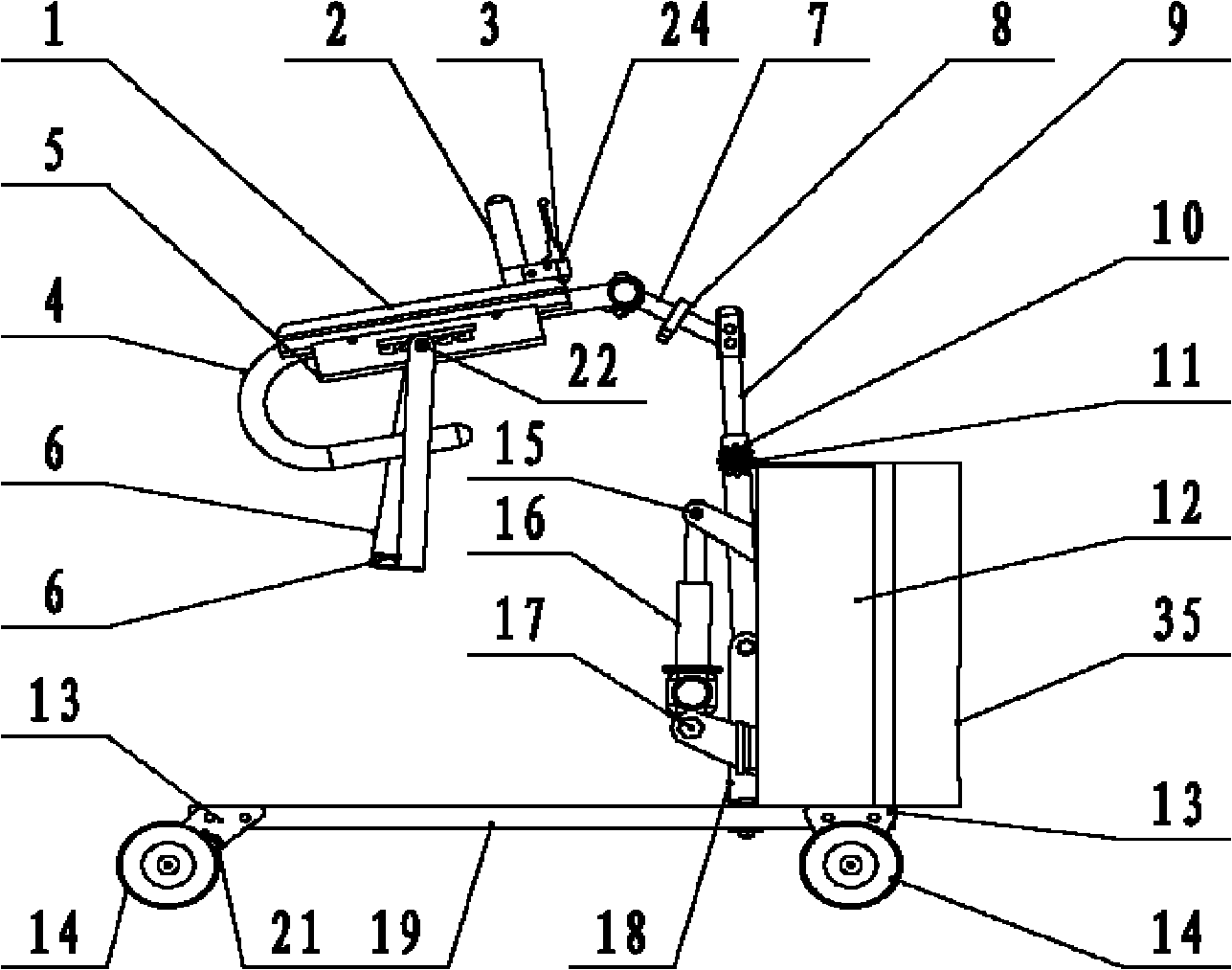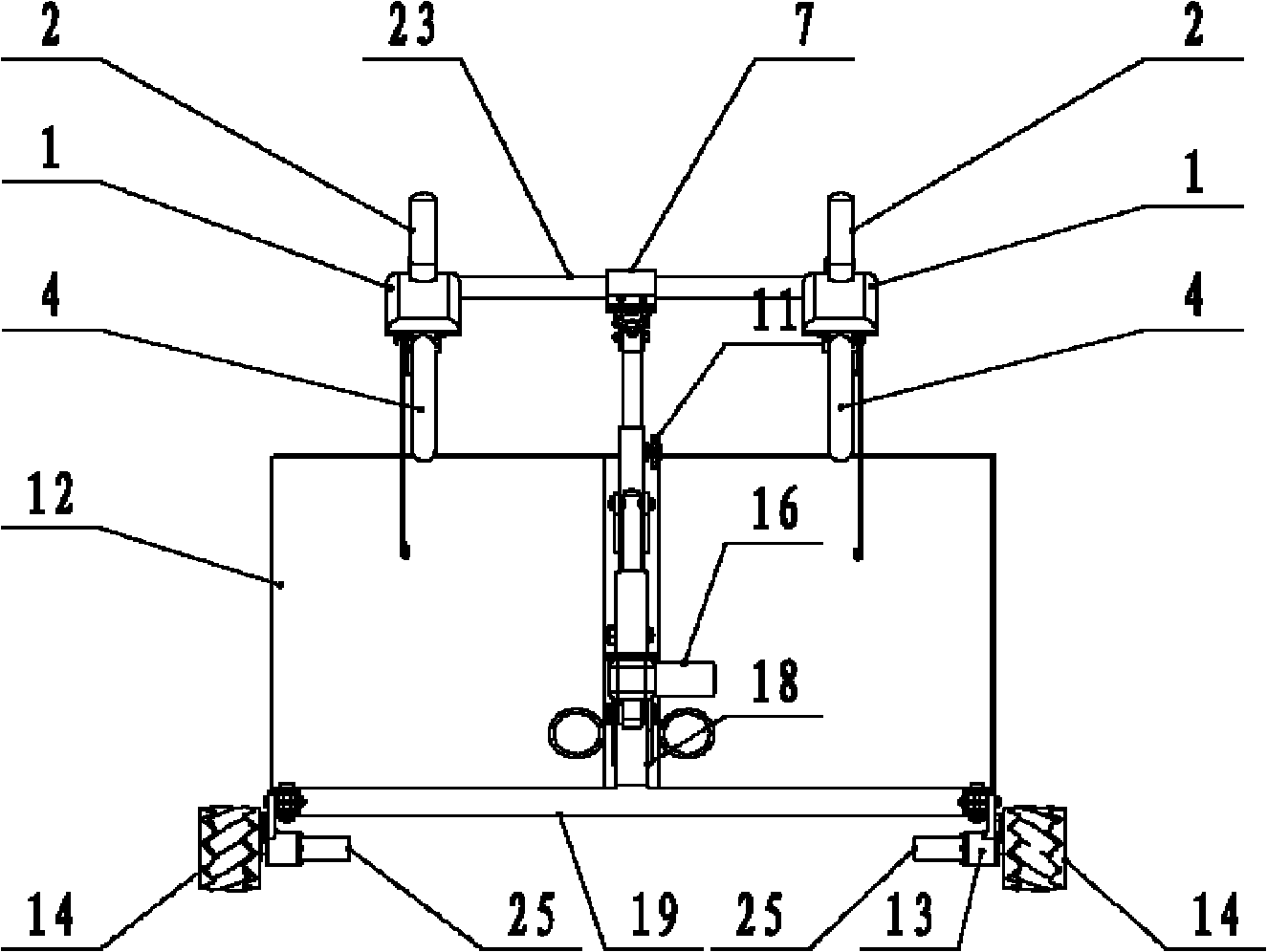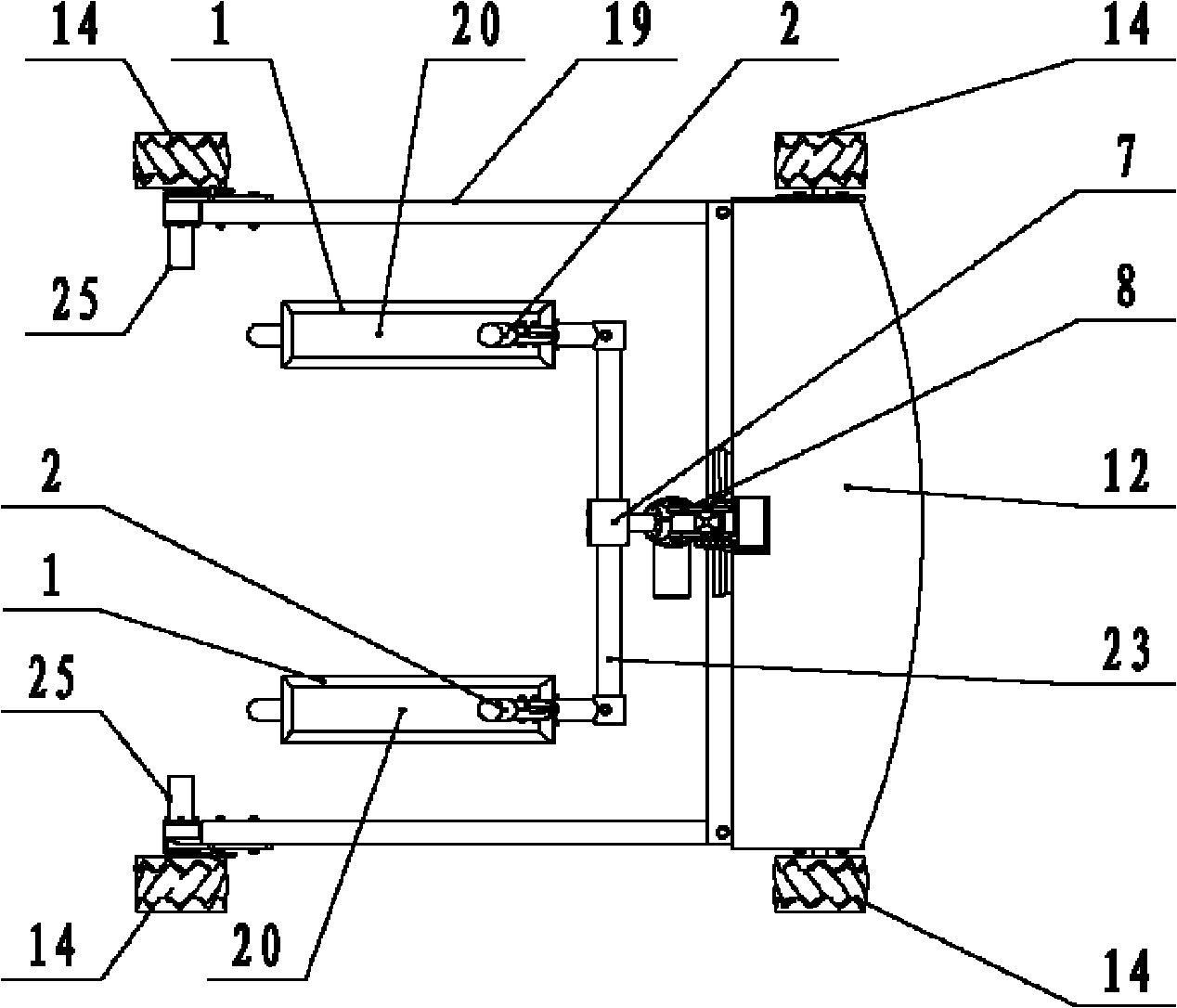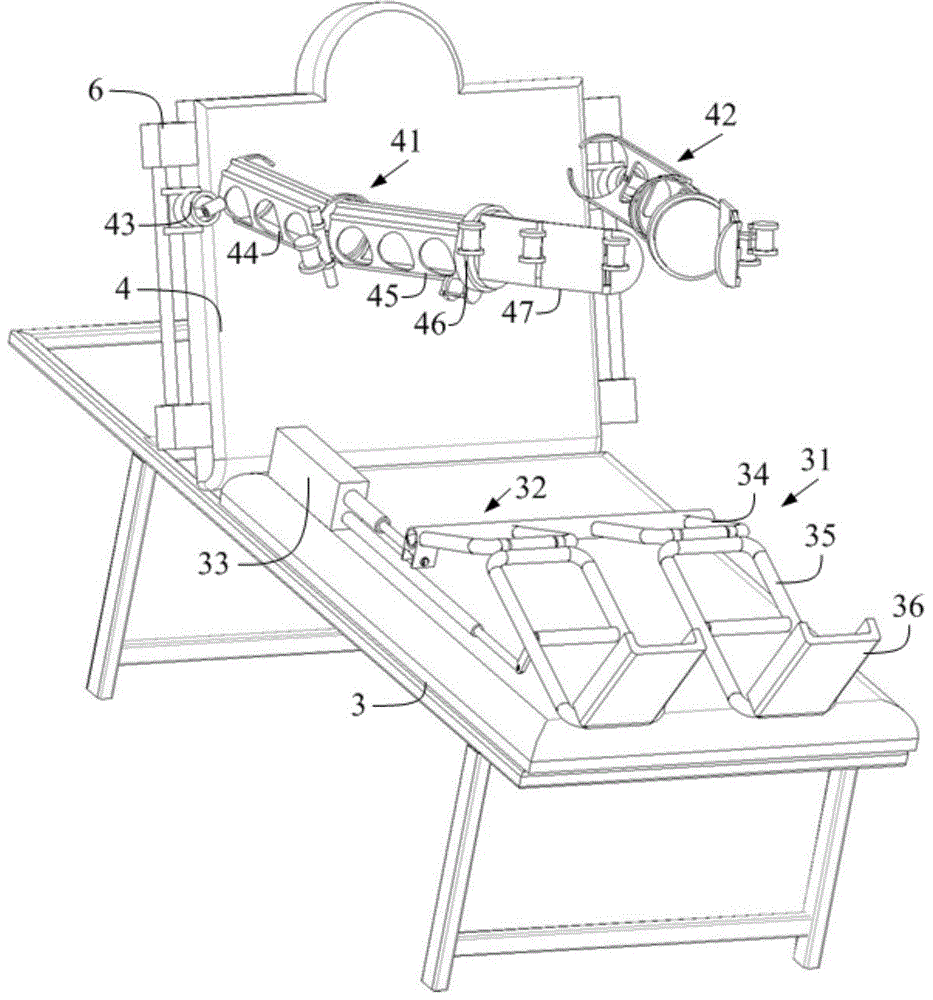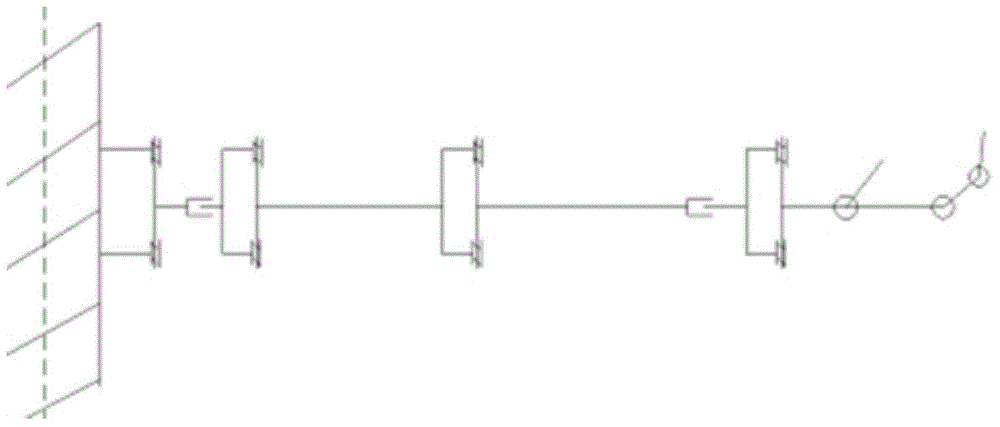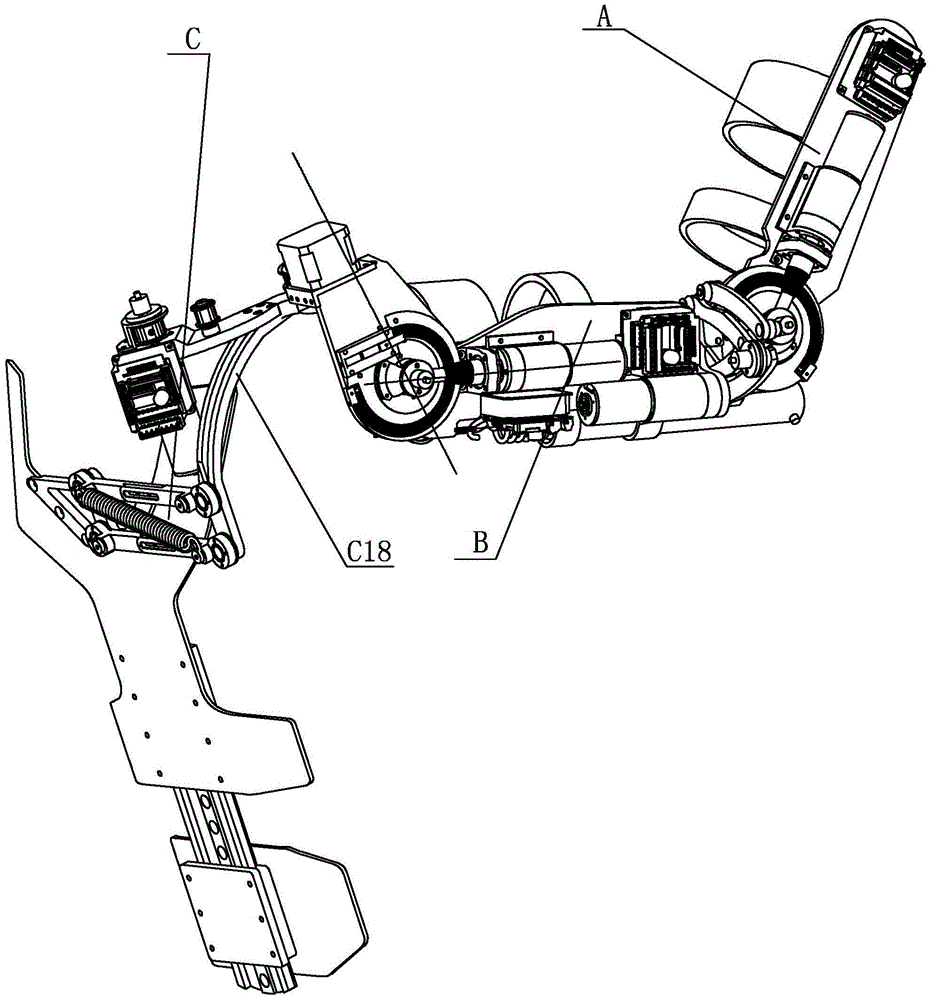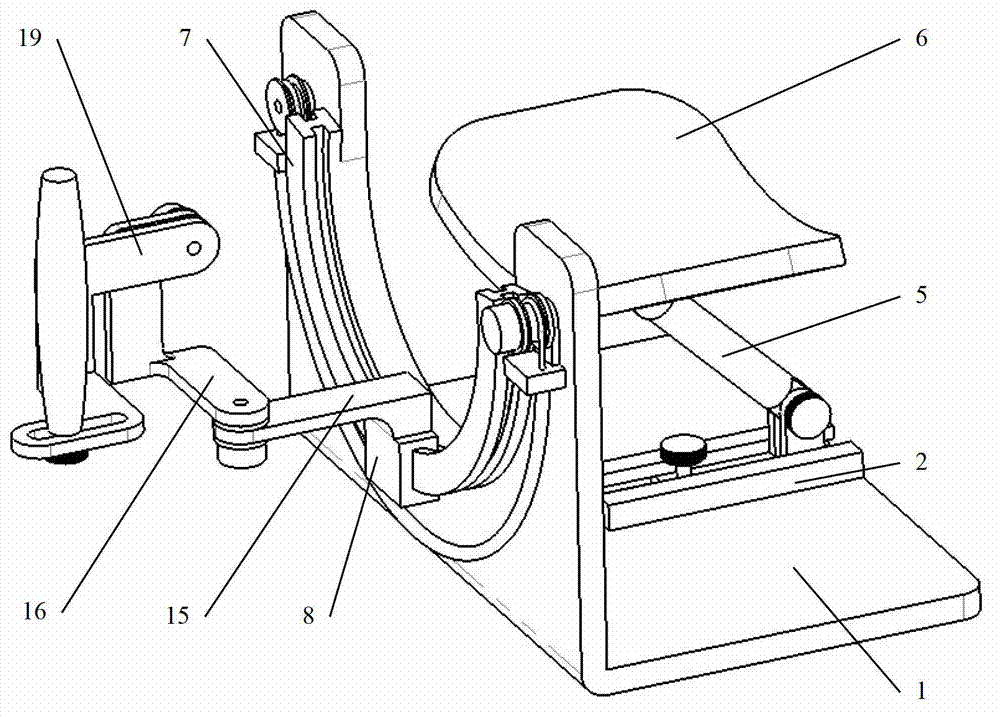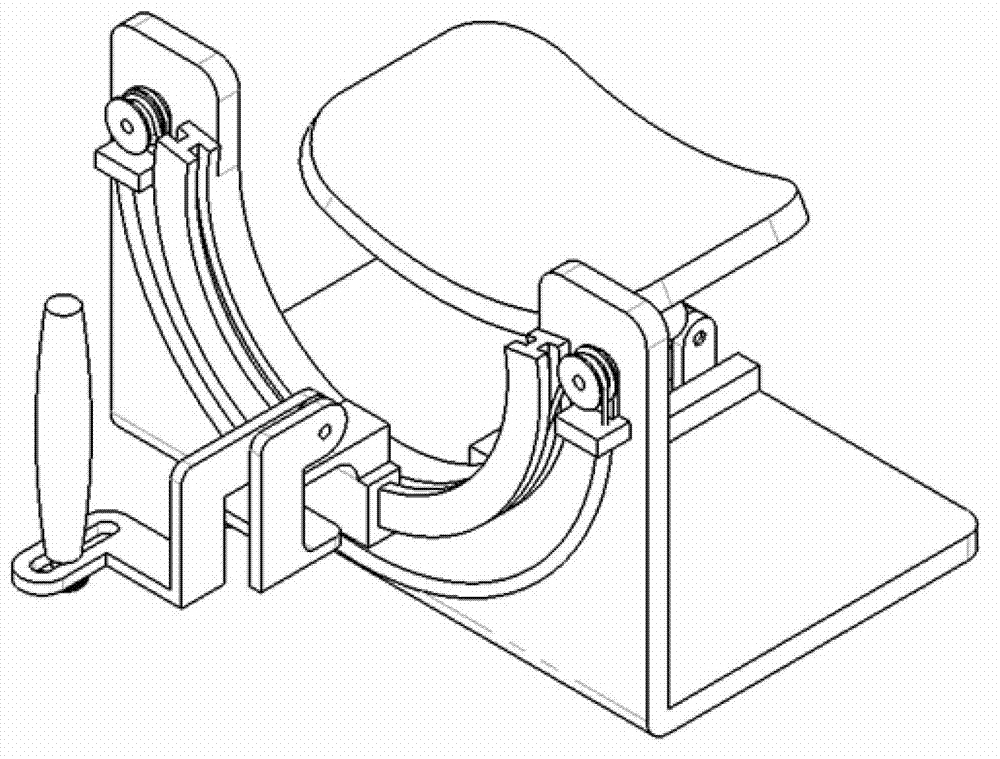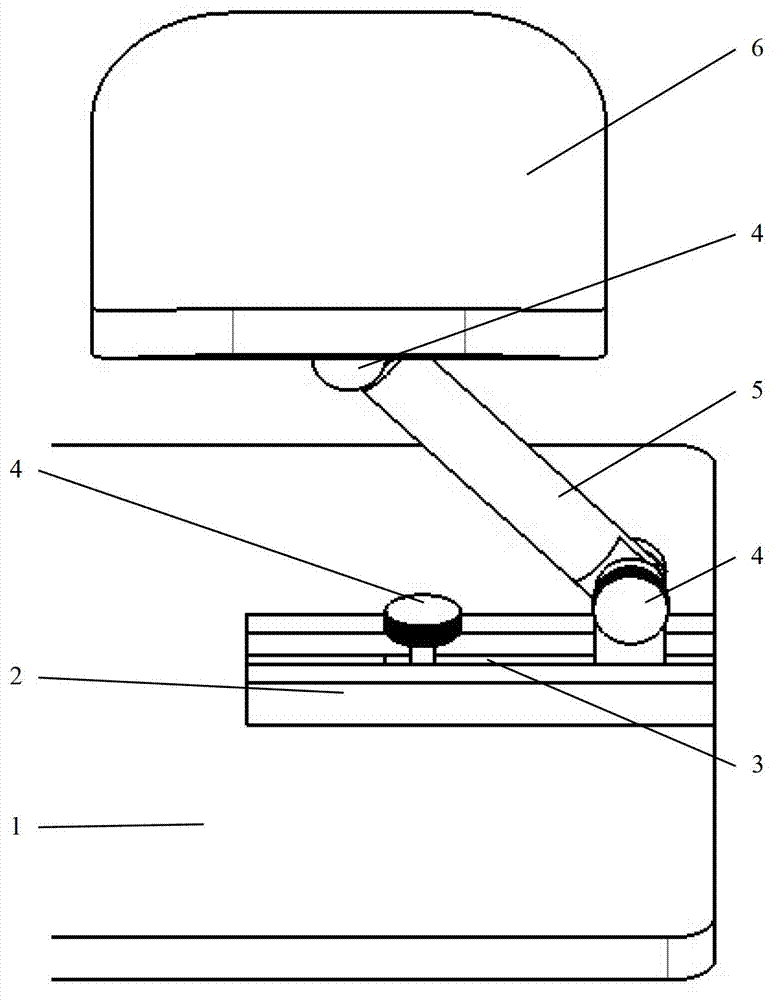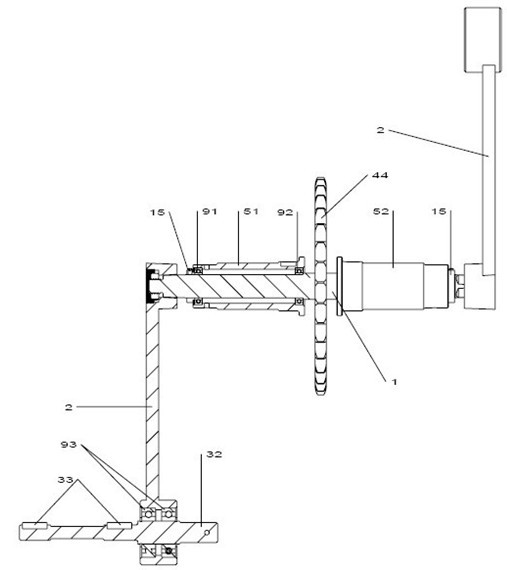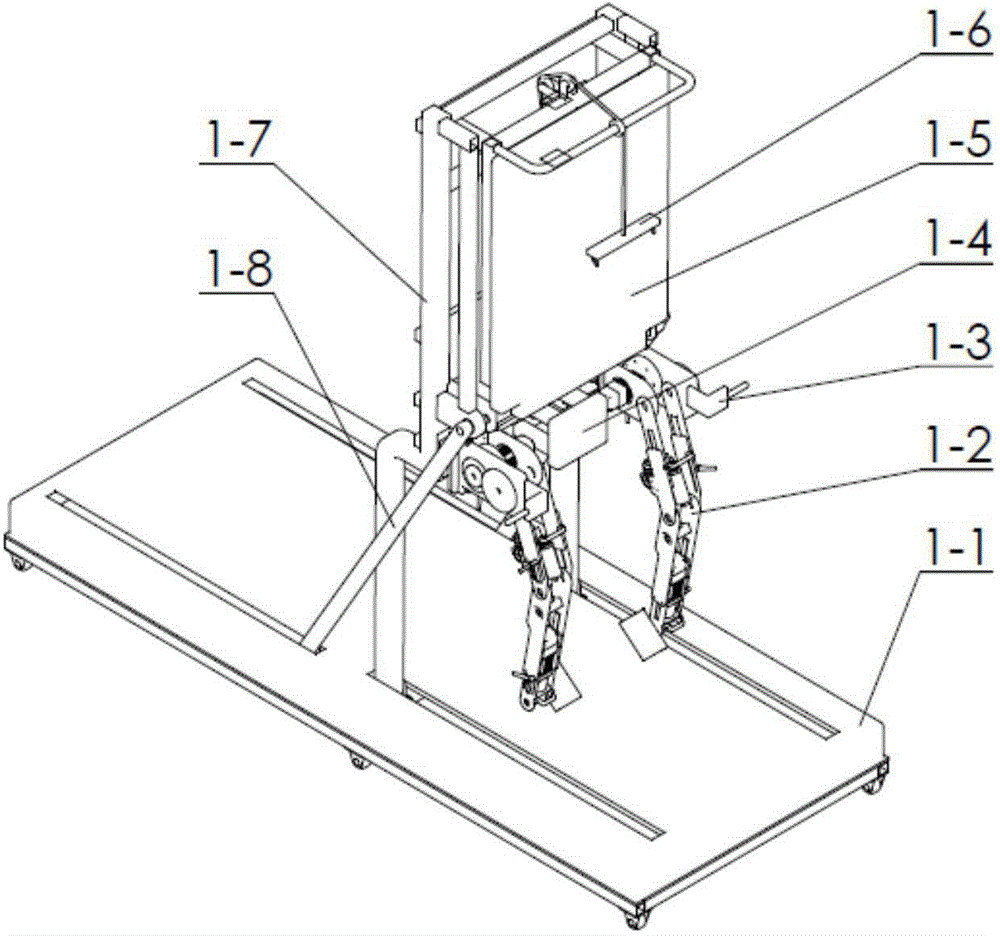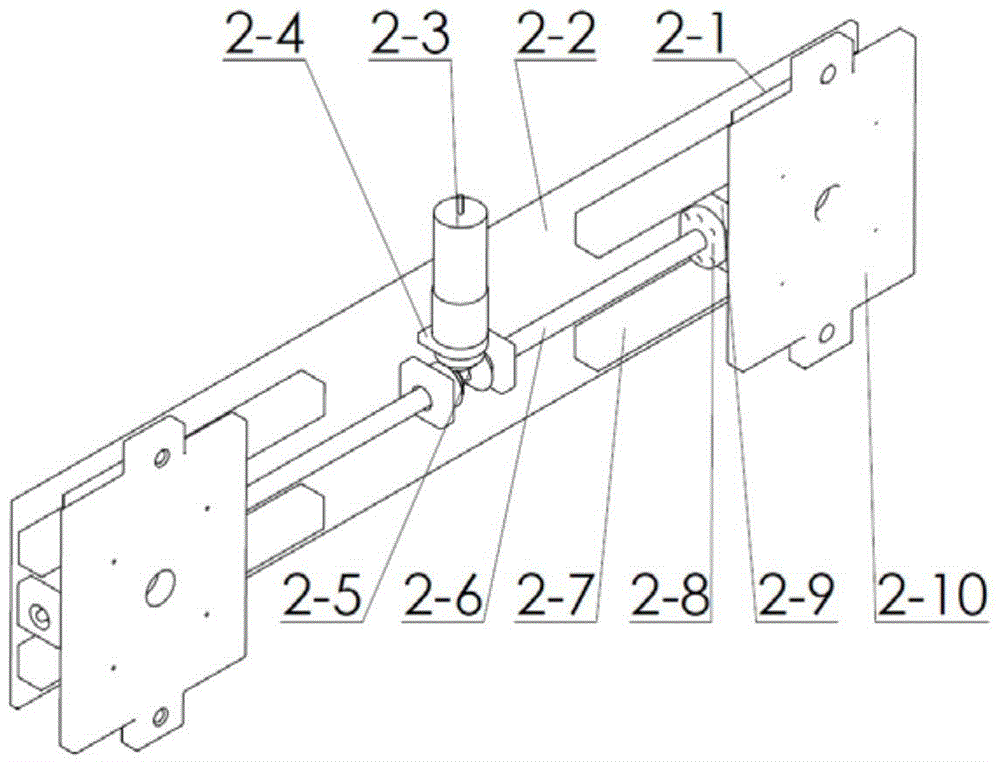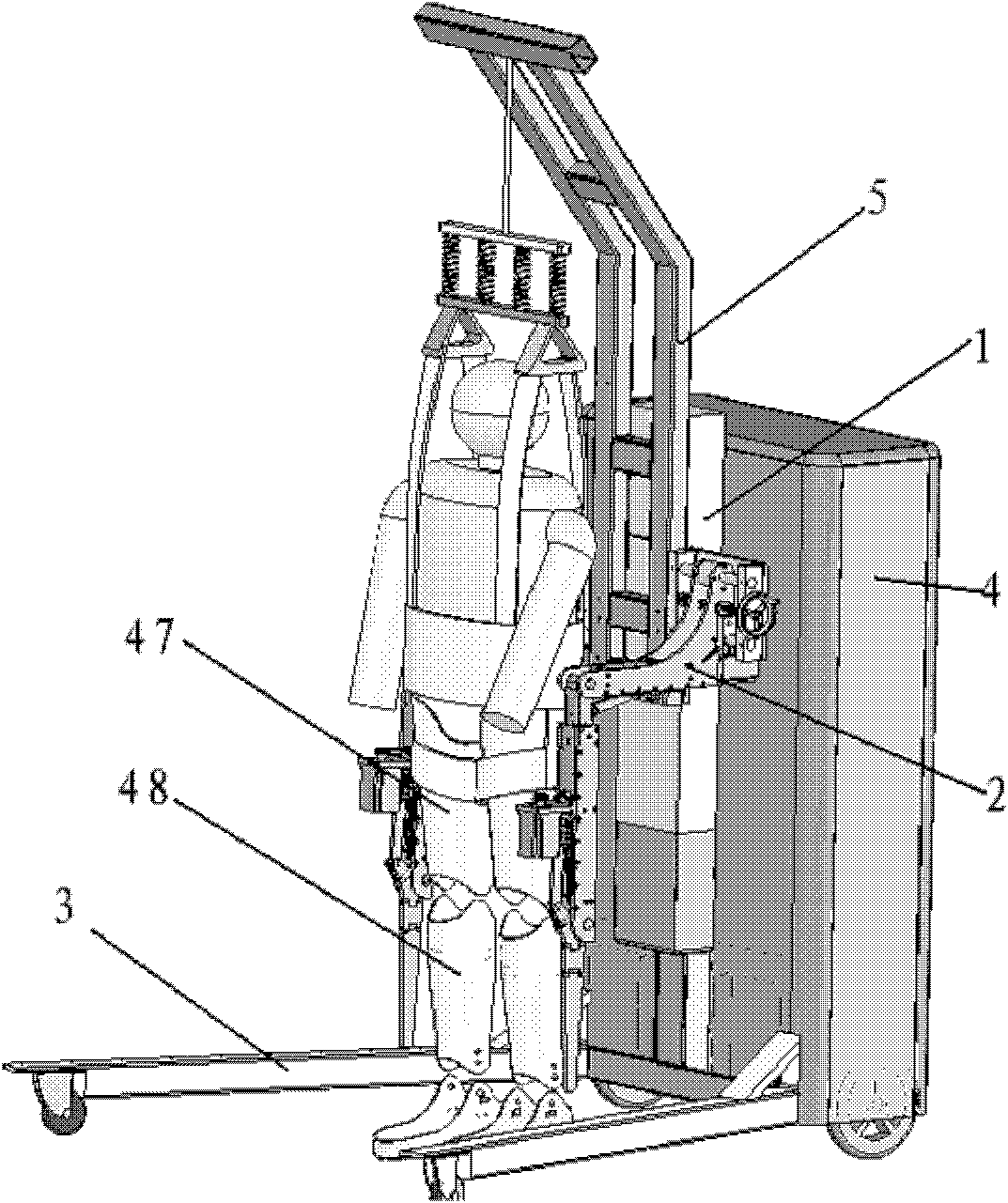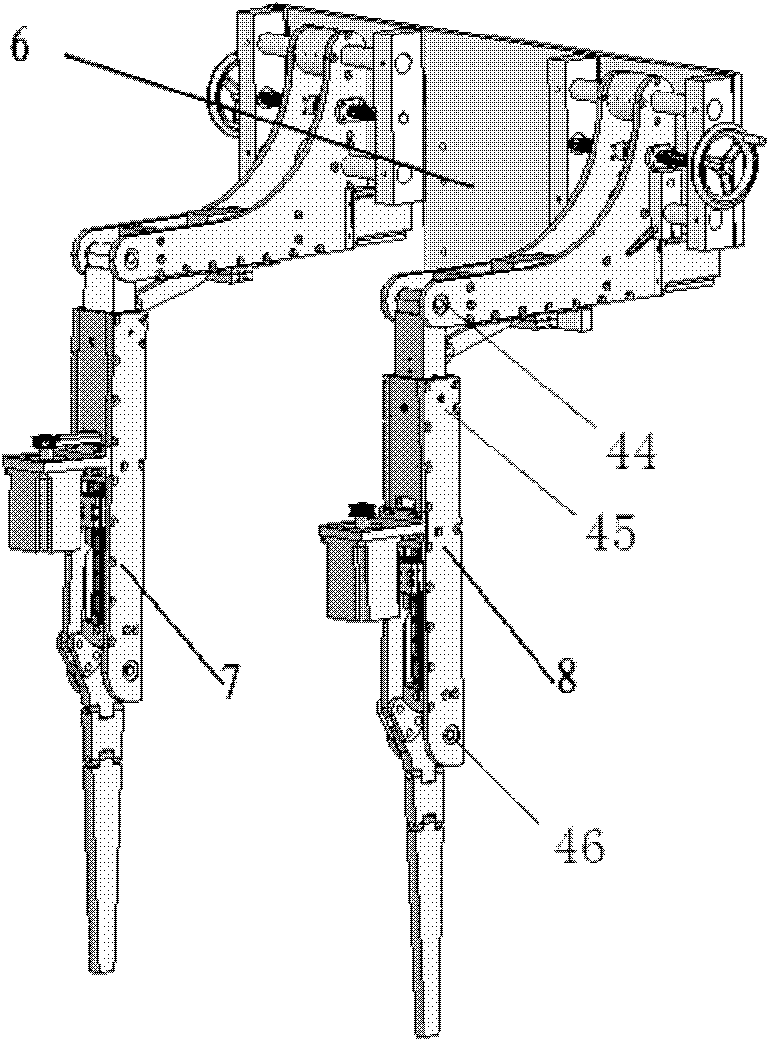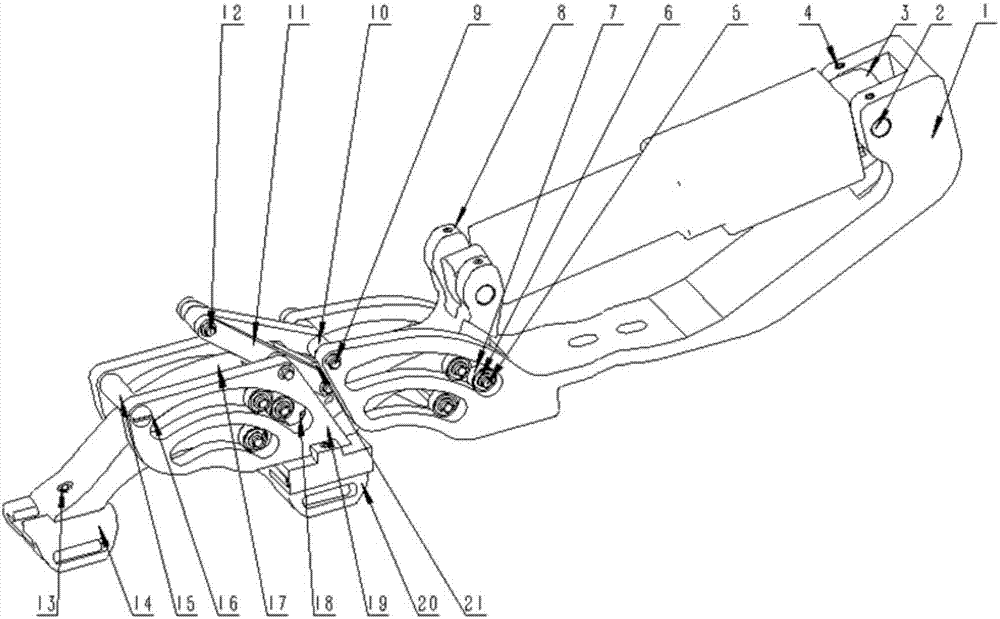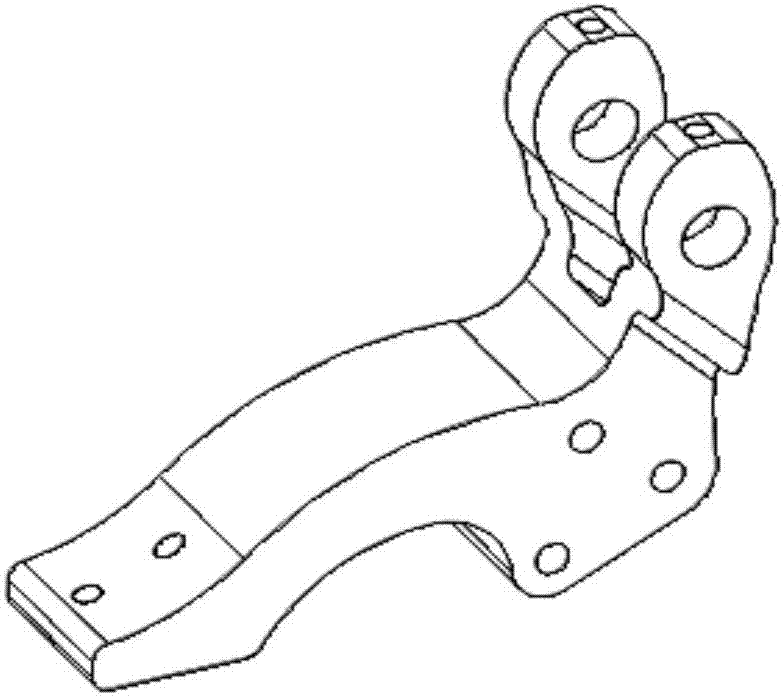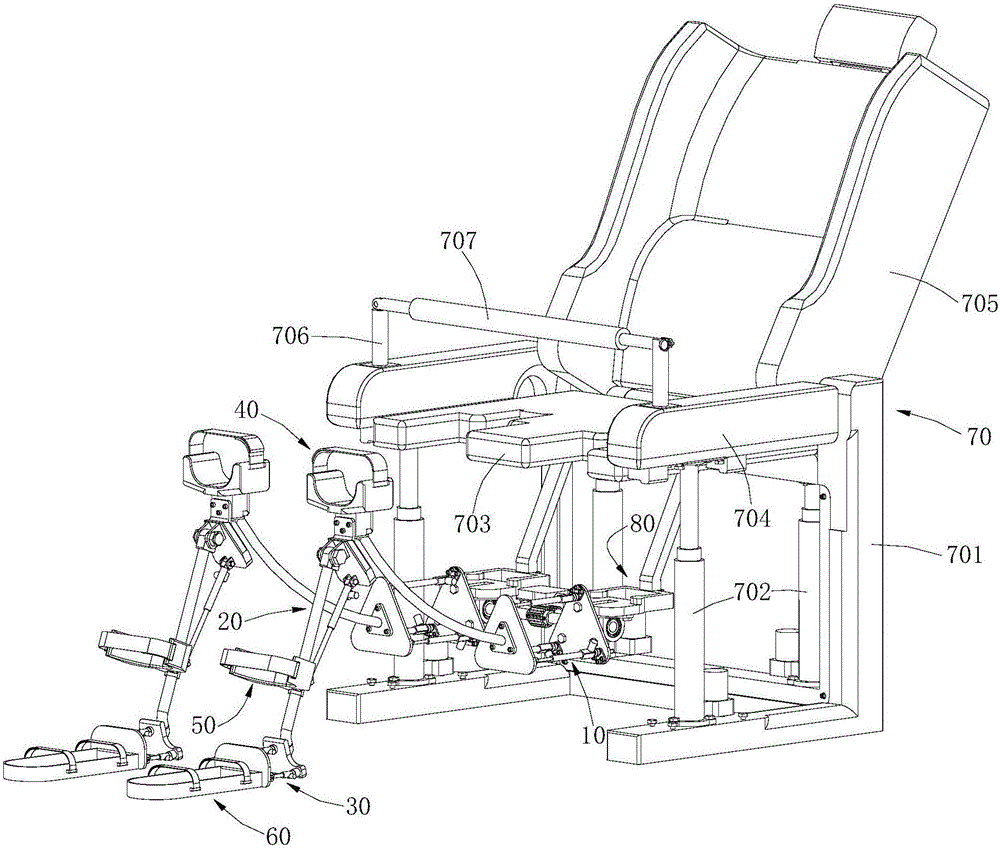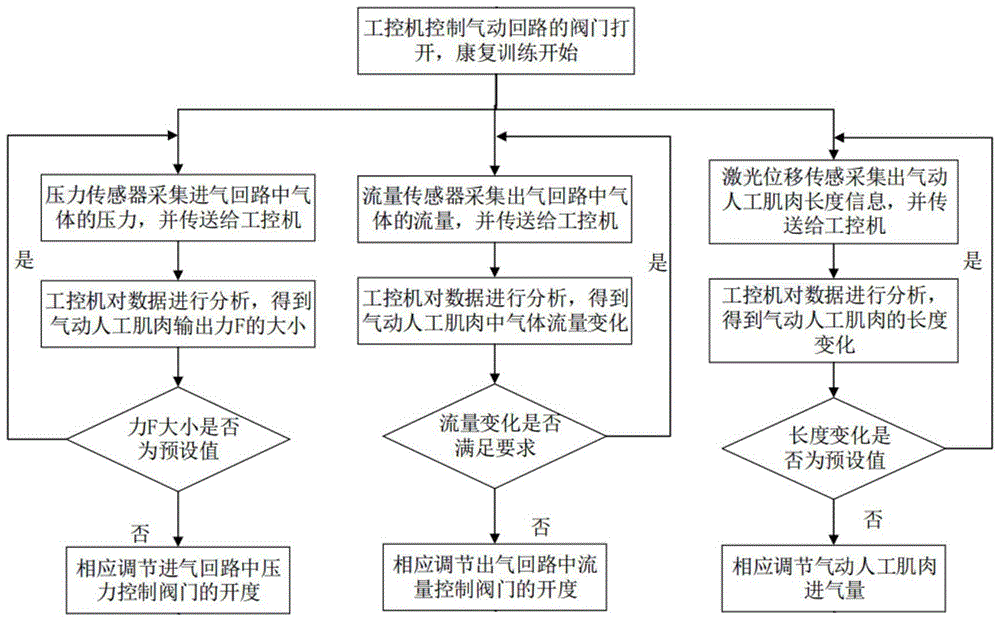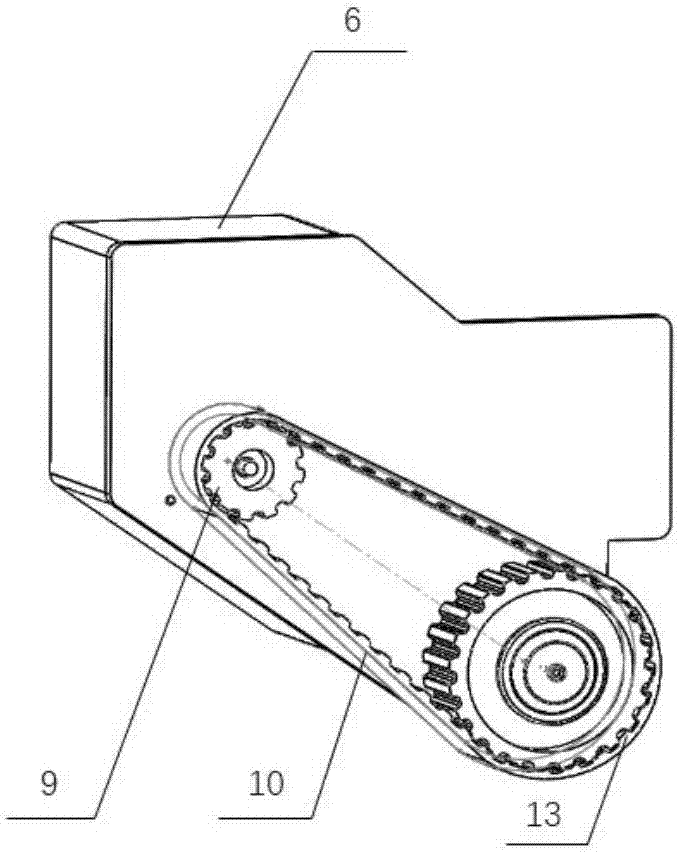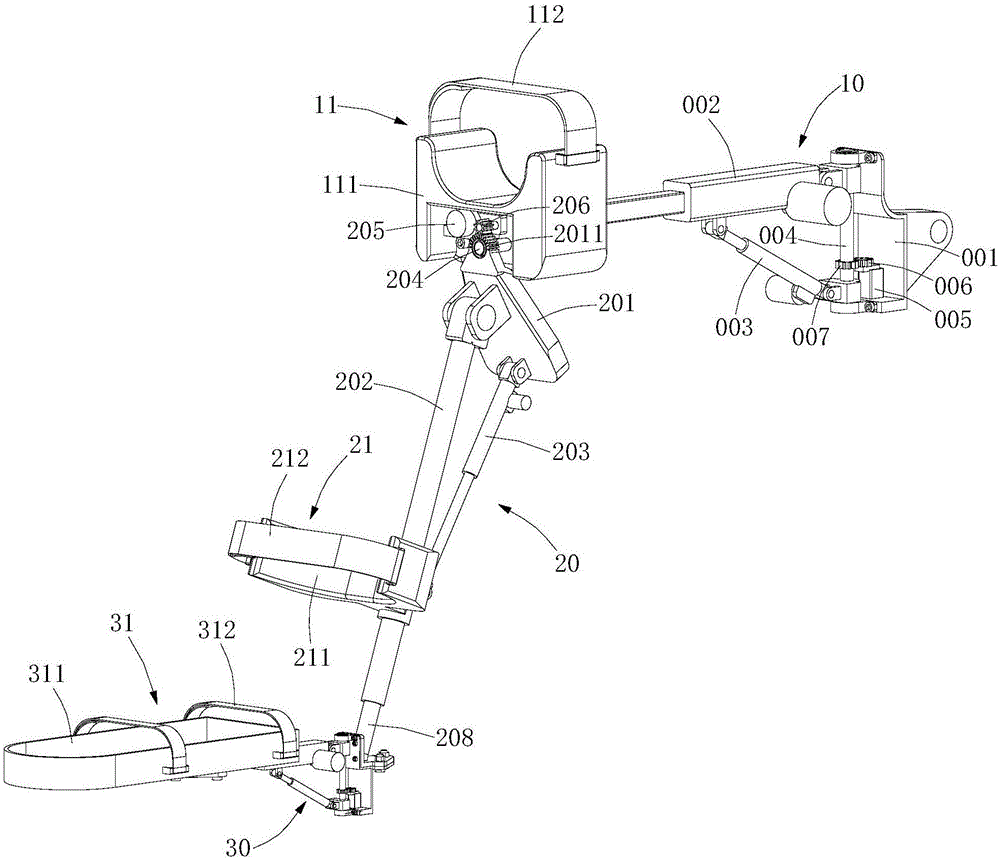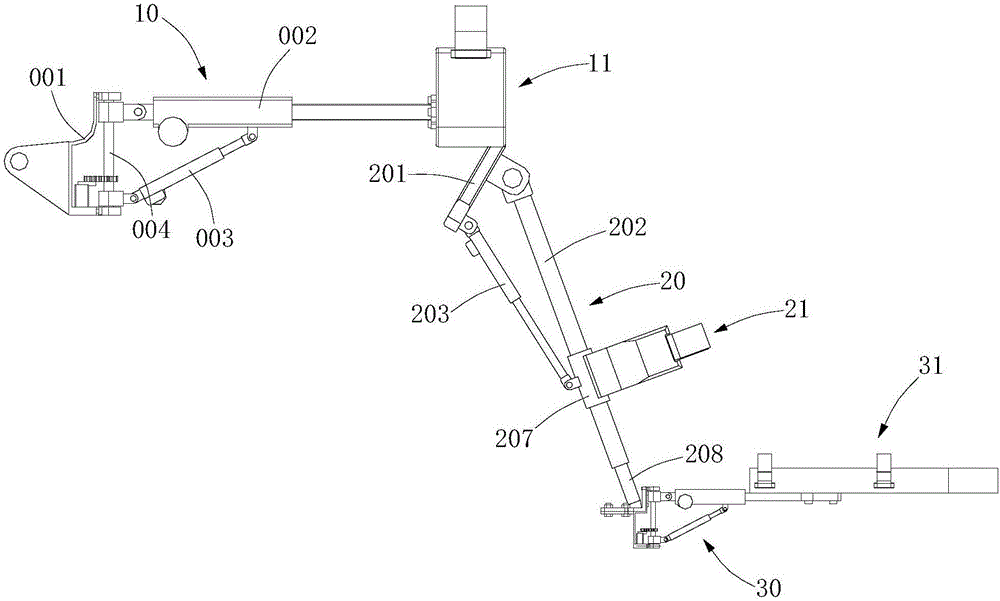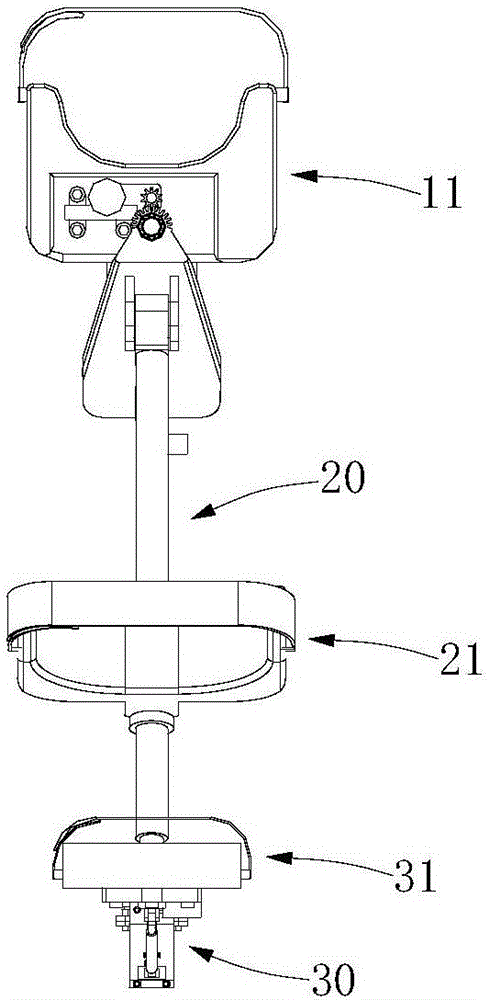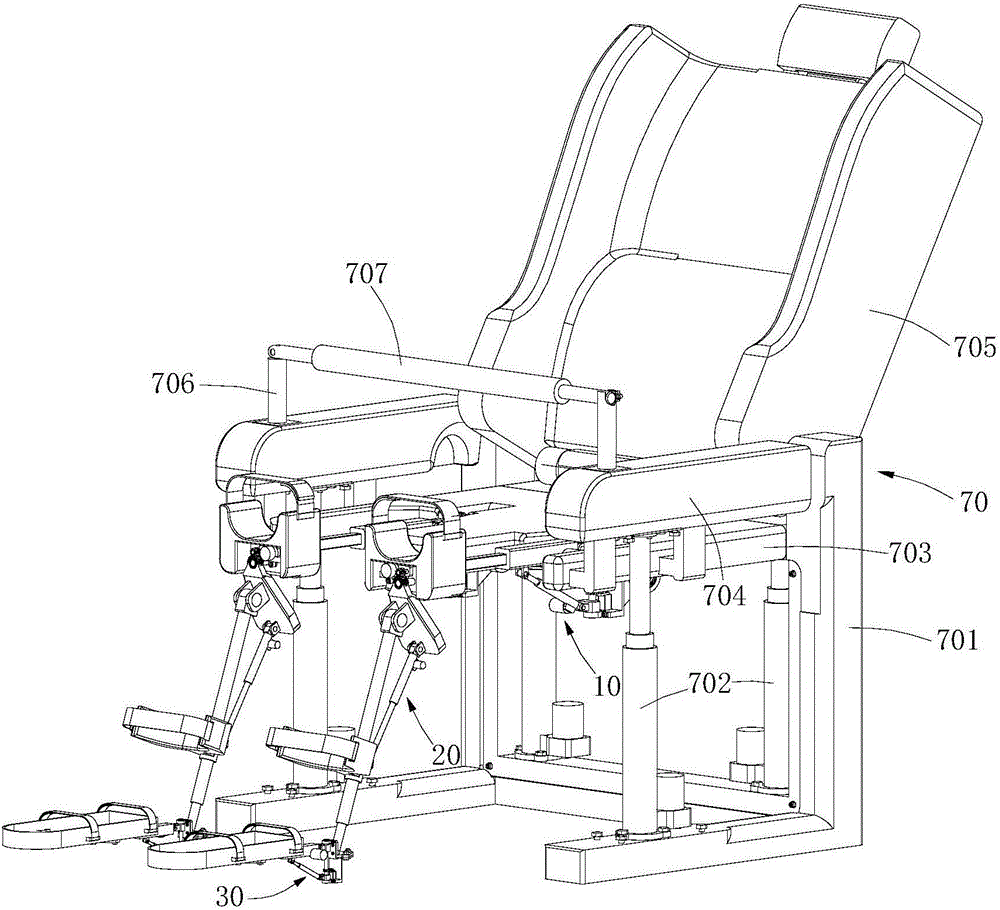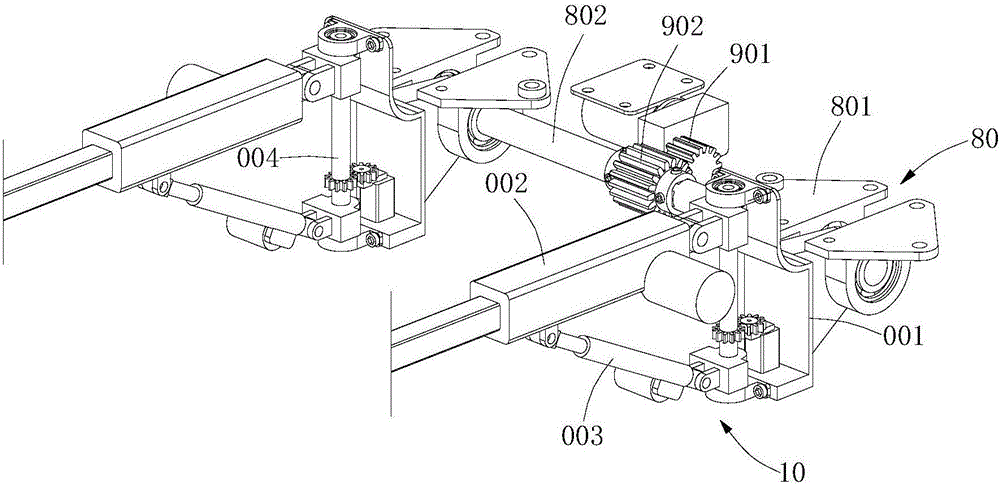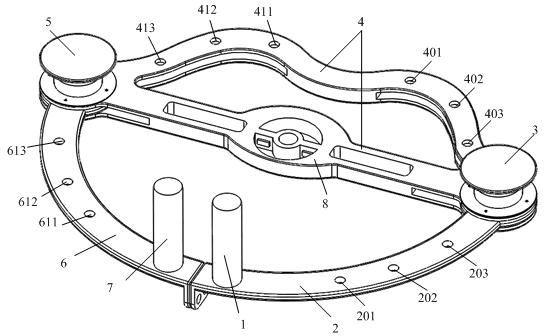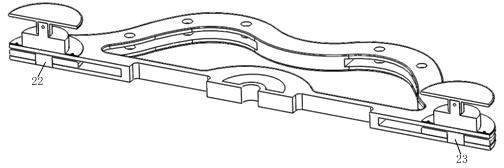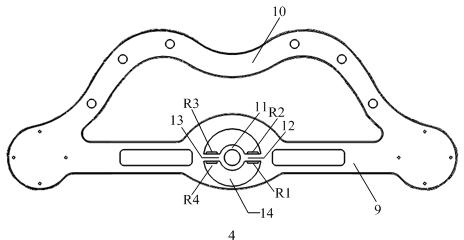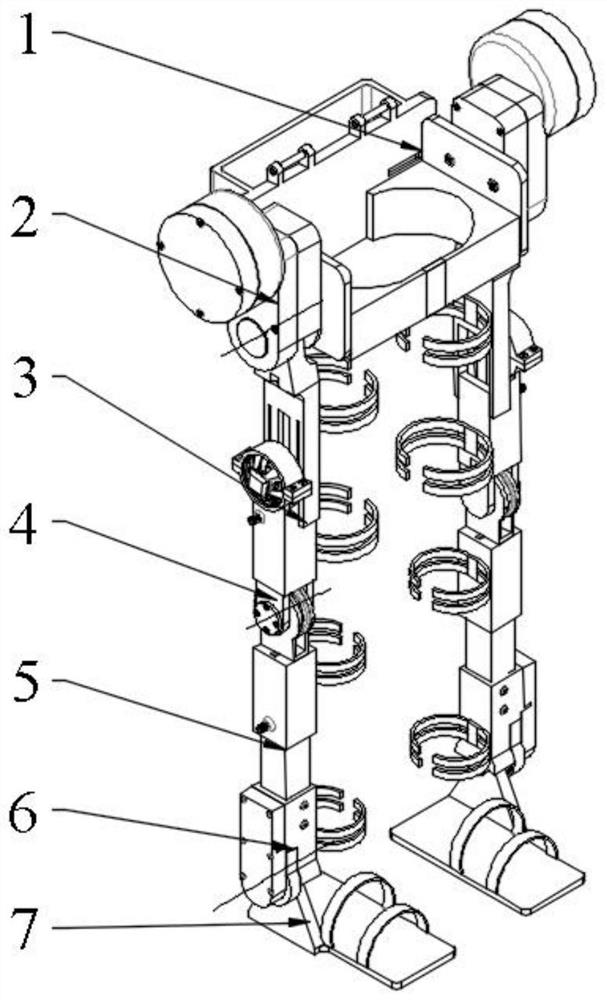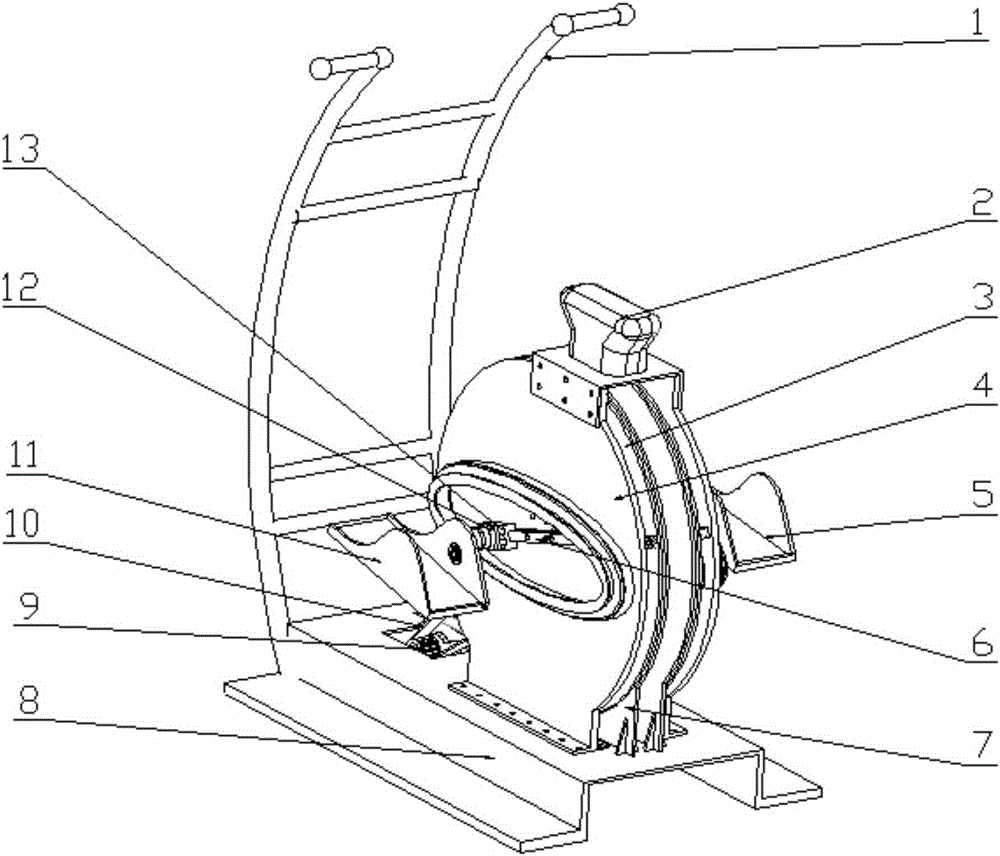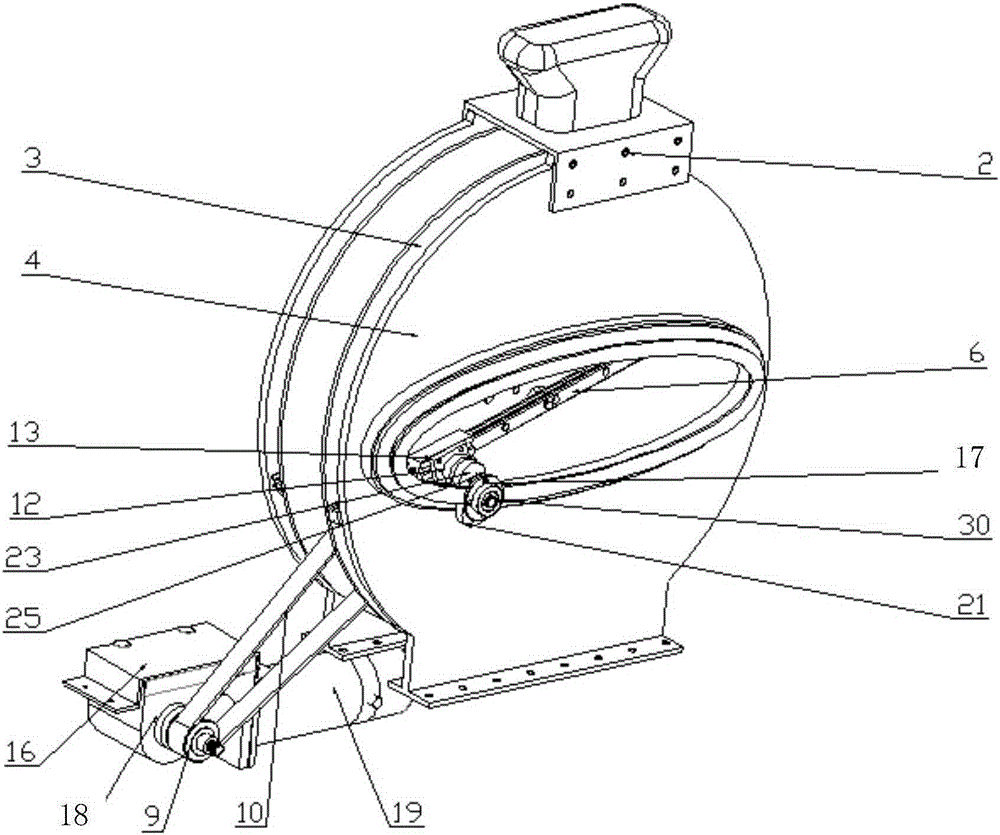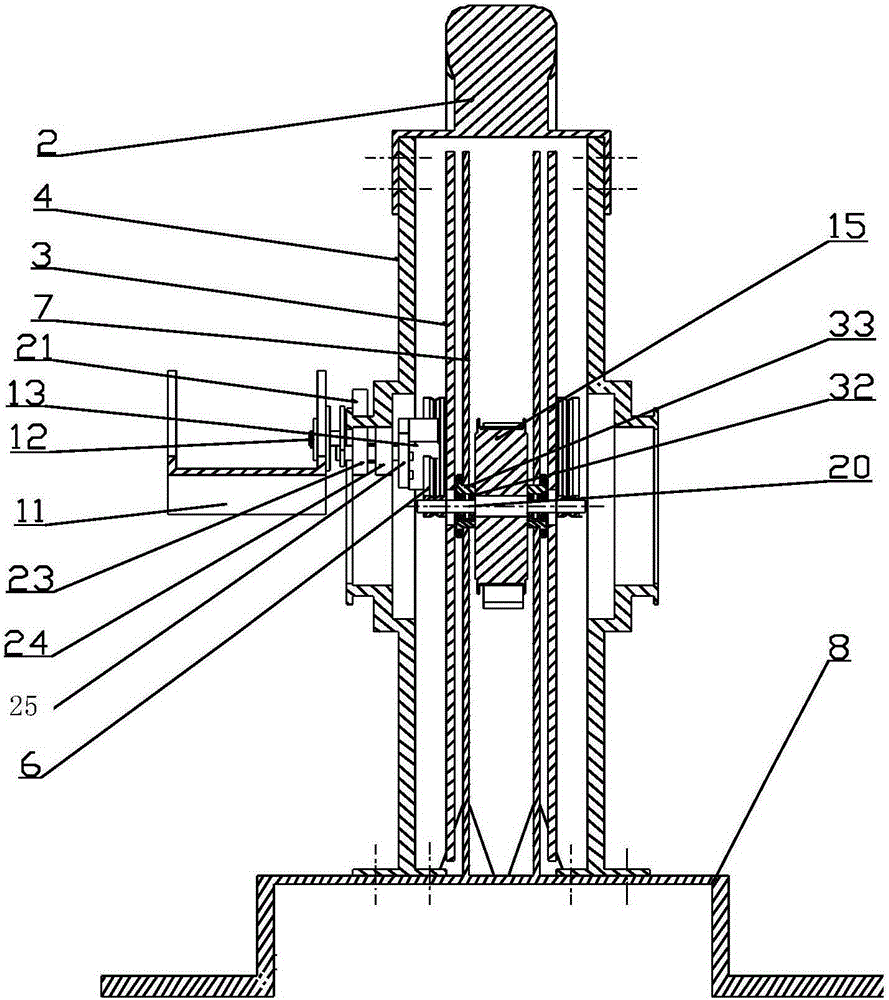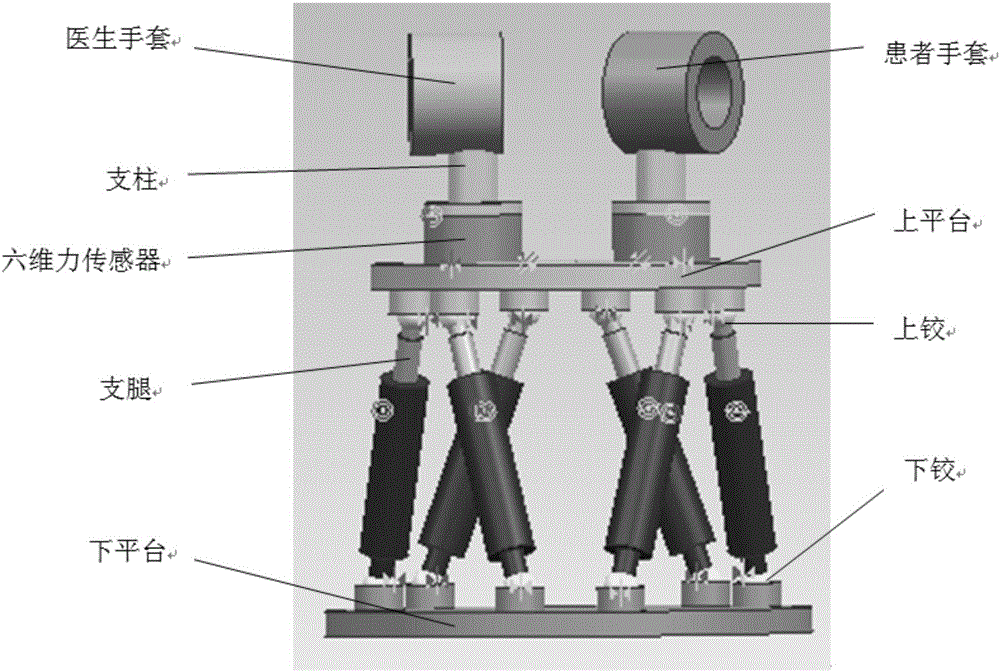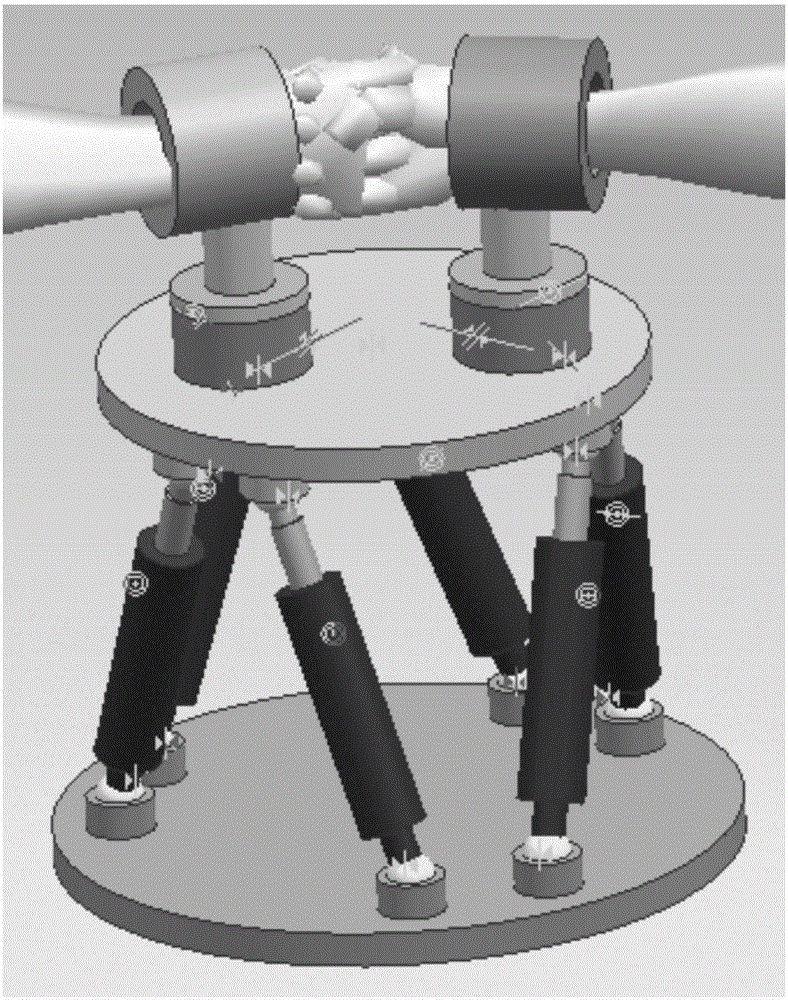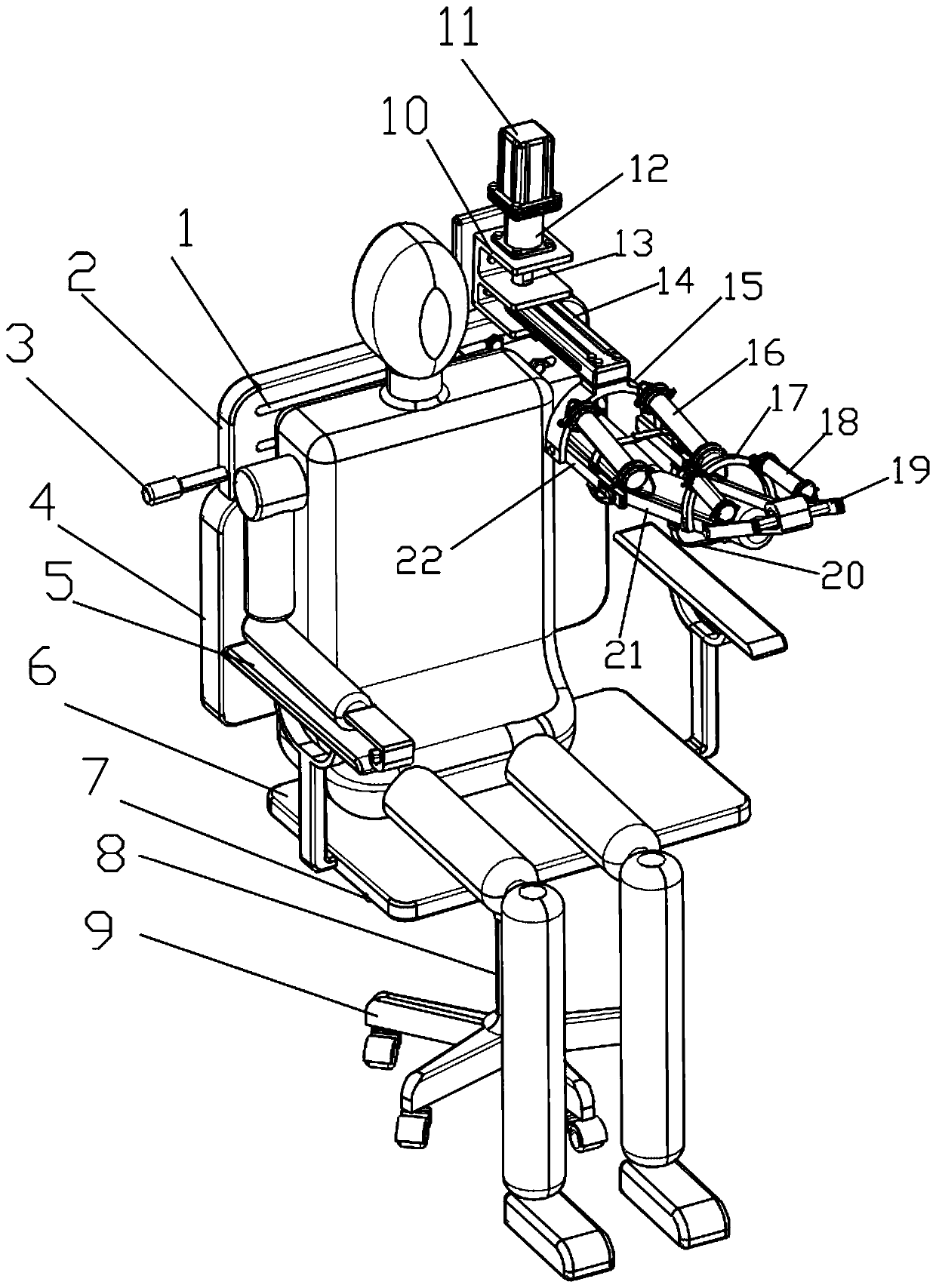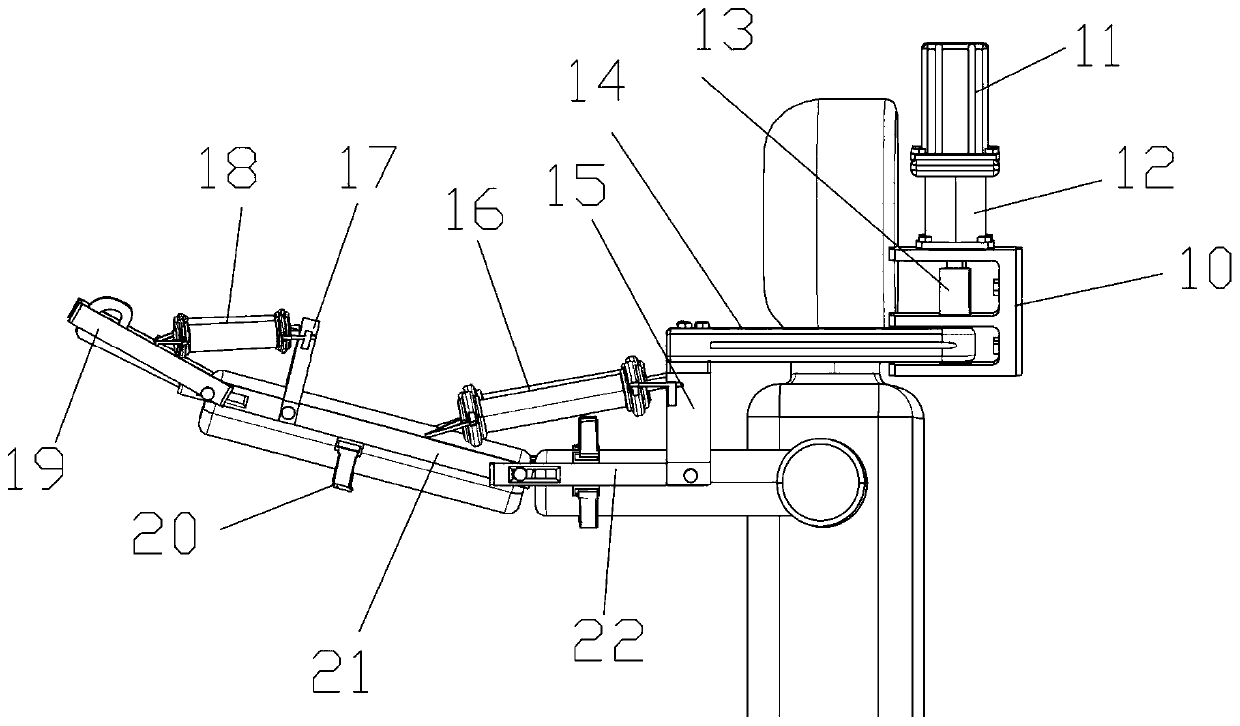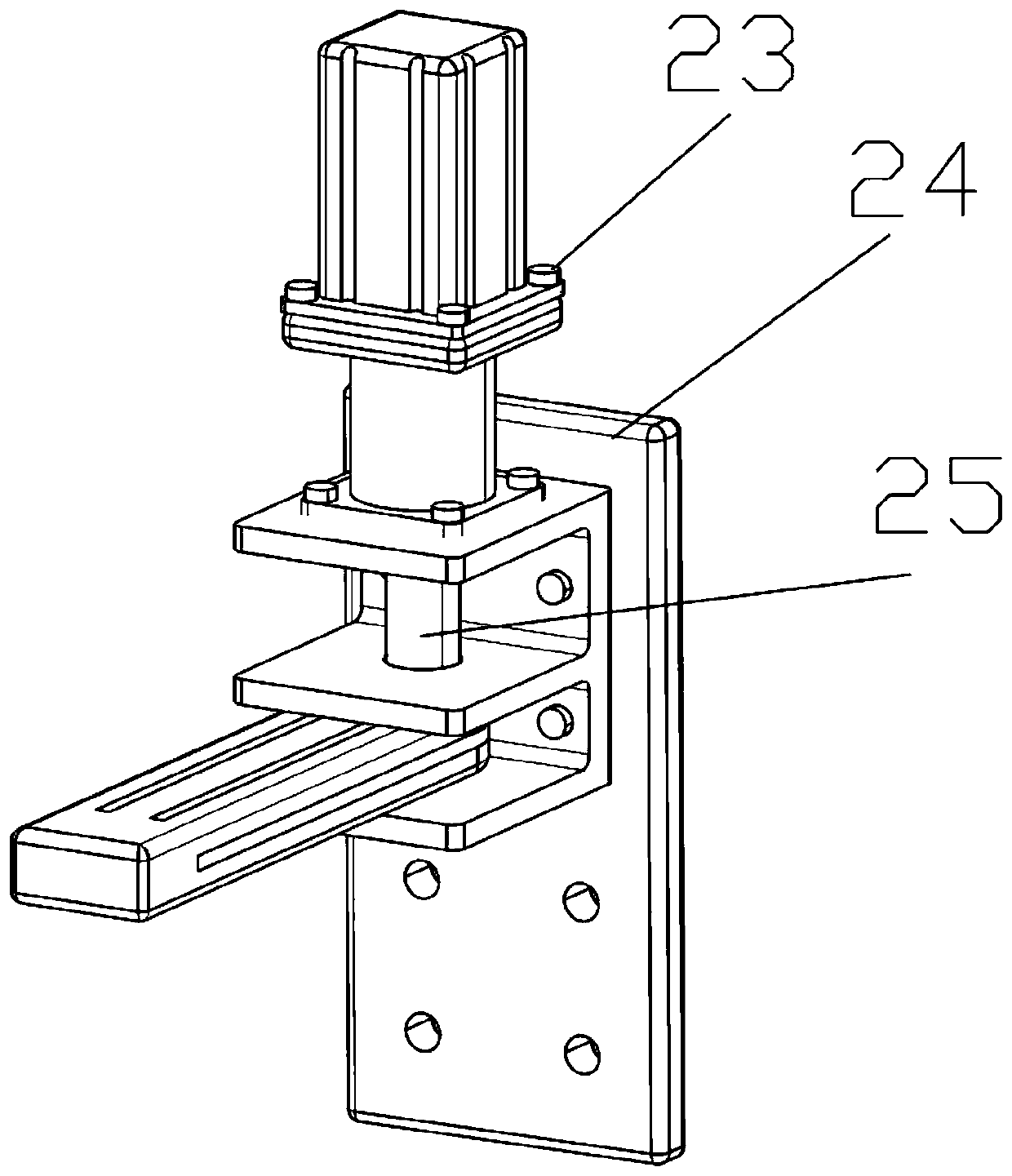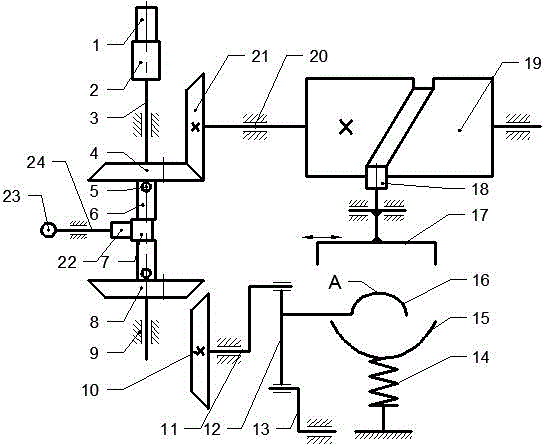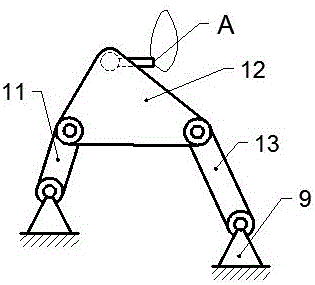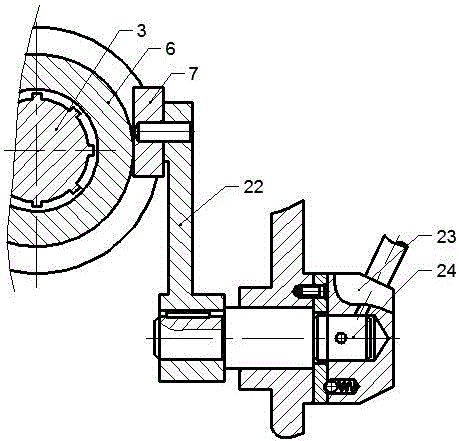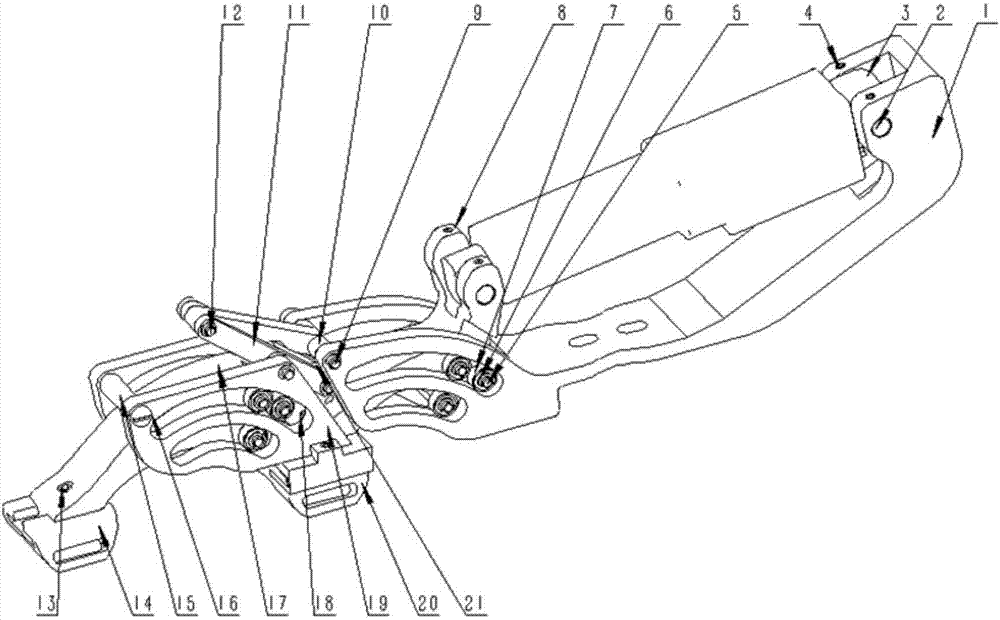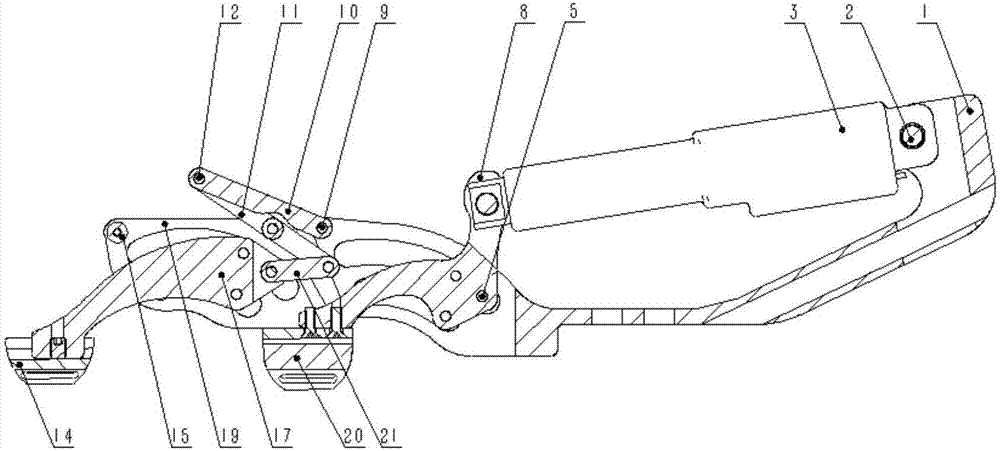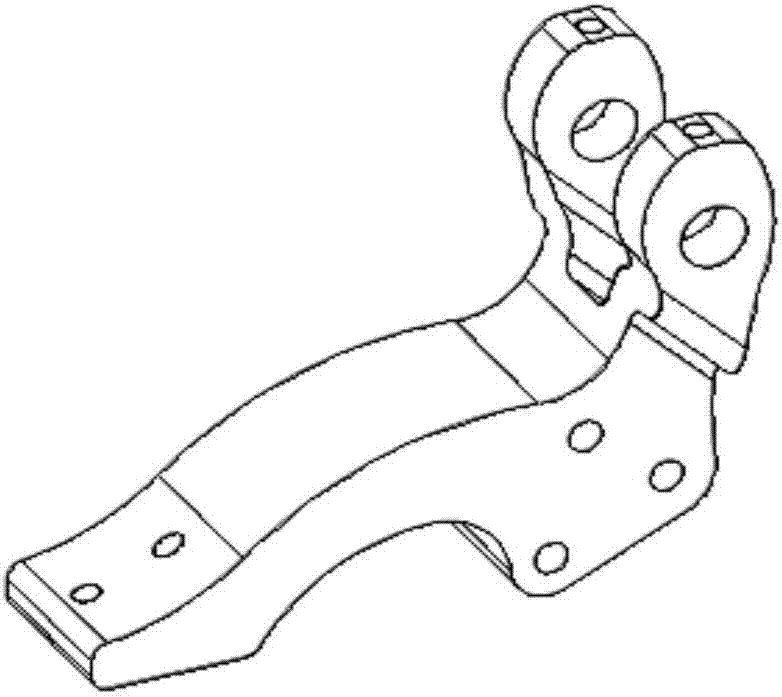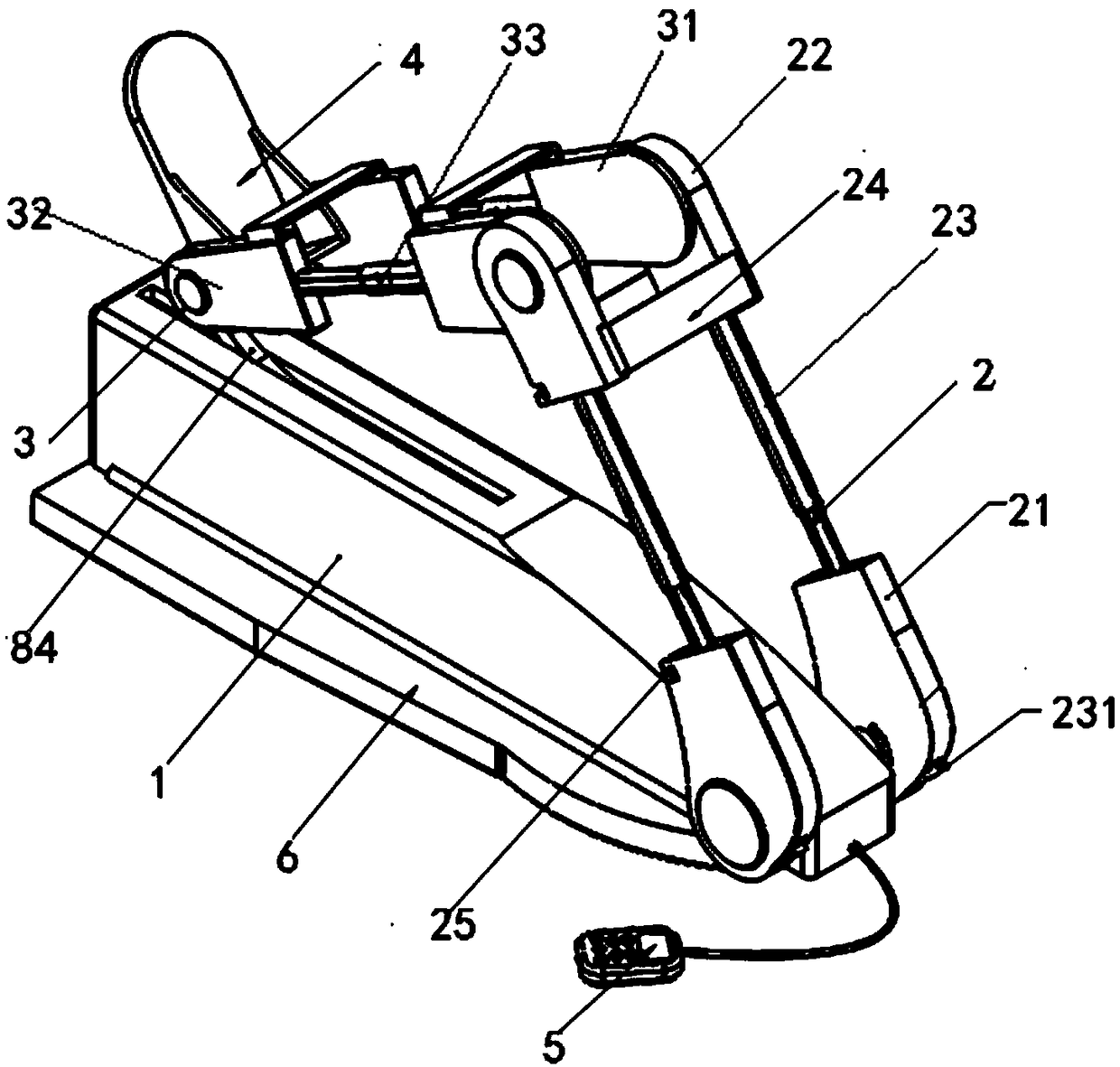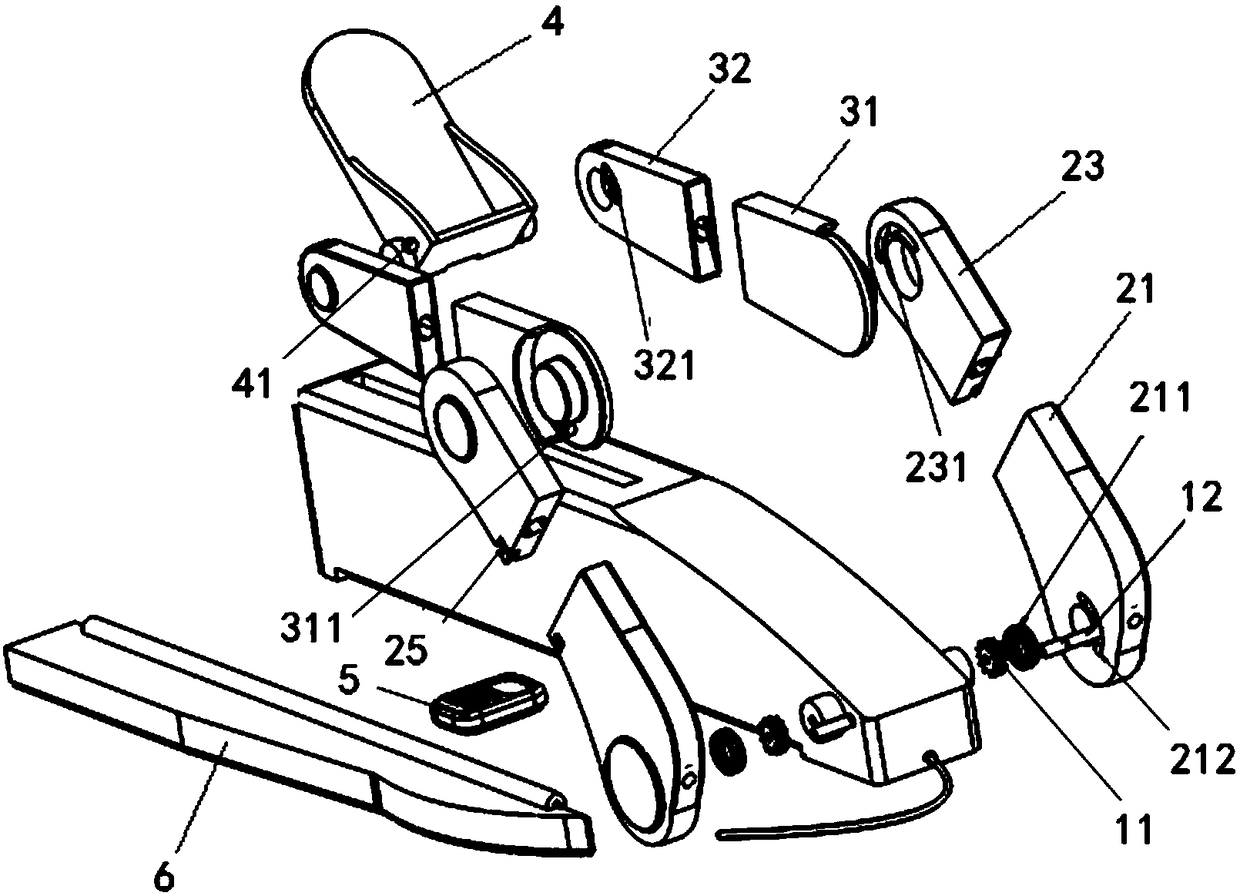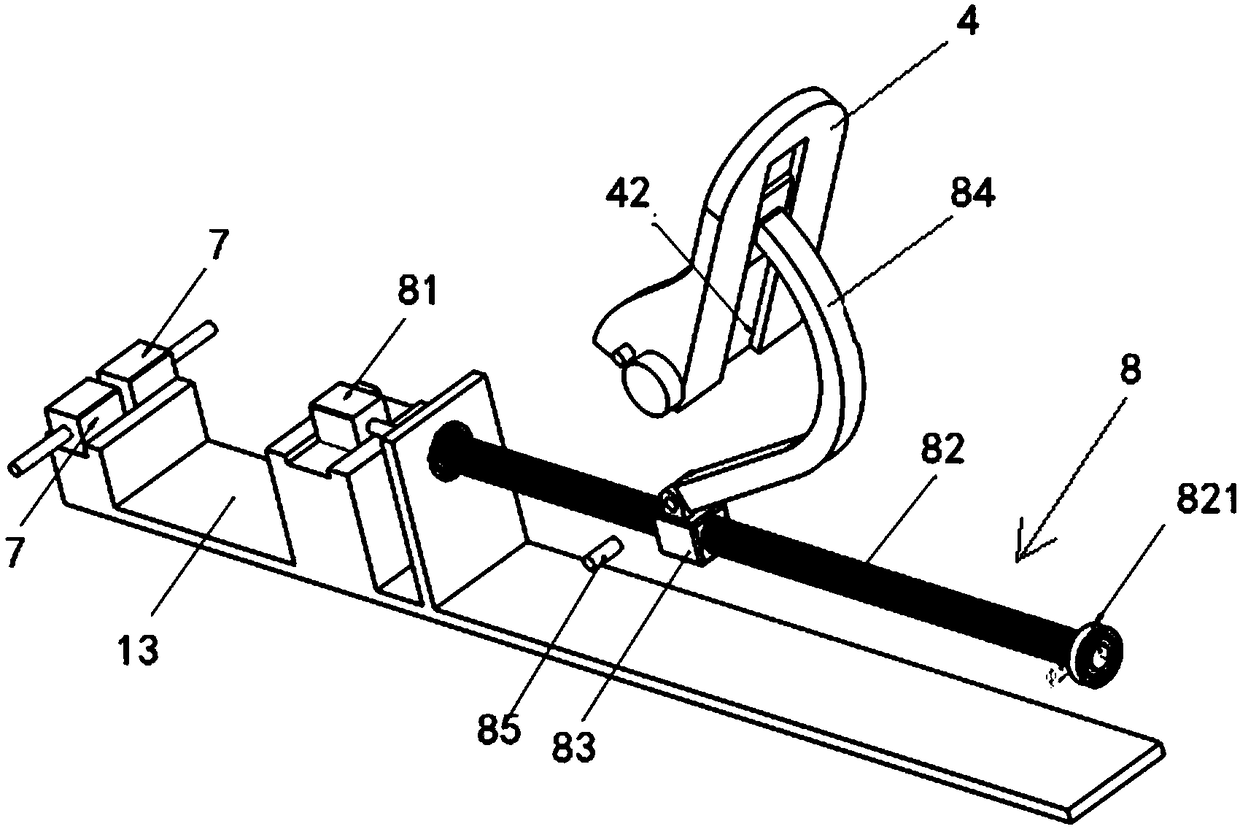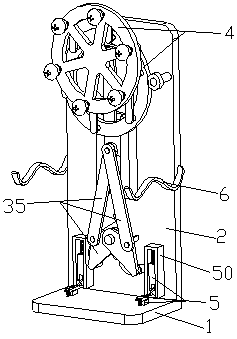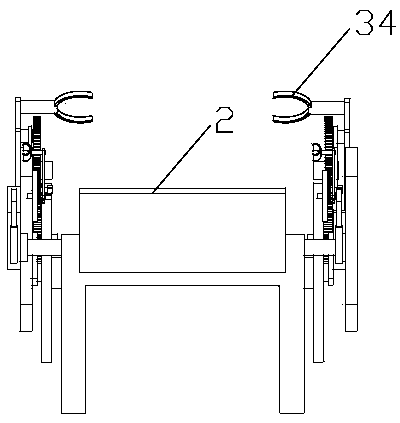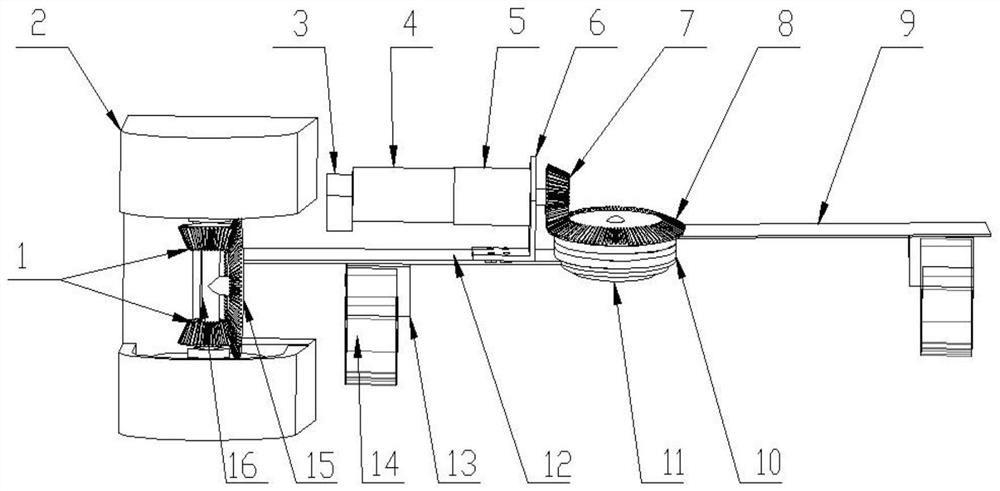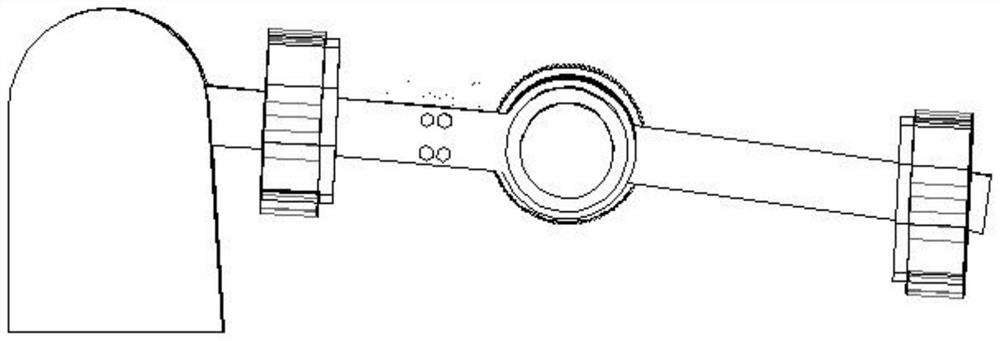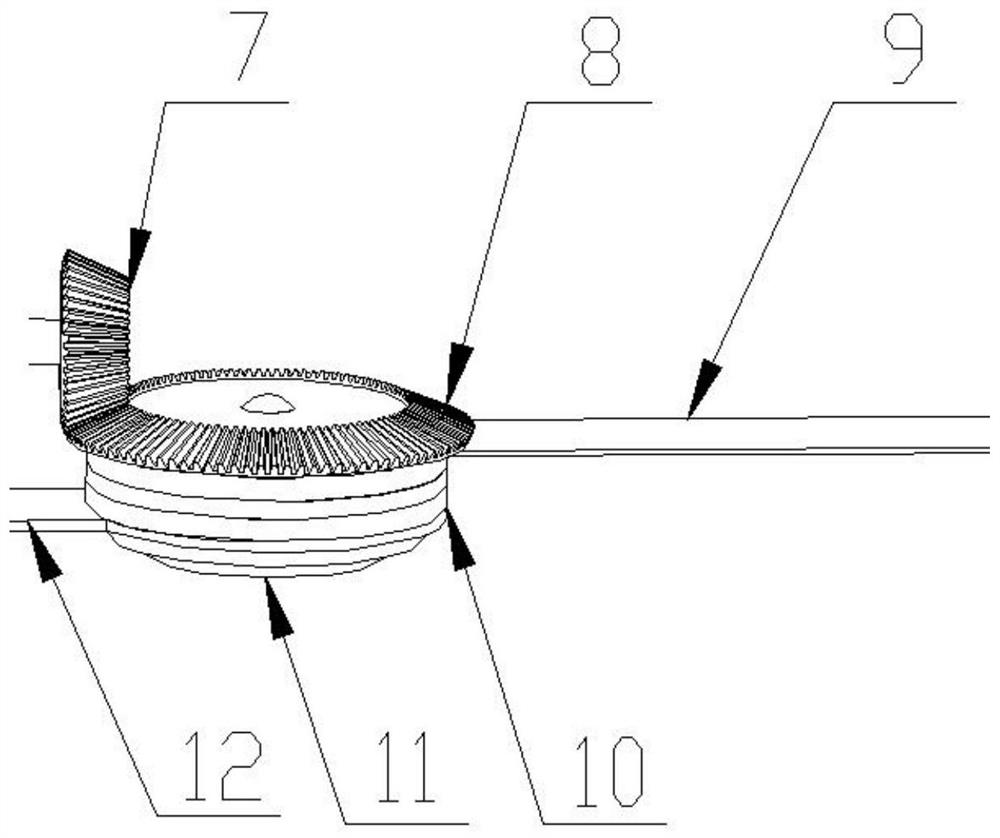Patents
Literature
Hiro is an intelligent assistant for R&D personnel, combined with Patent DNA, to facilitate innovative research.
179results about How to "Realize rehabilitation training" patented technology
Efficacy Topic
Property
Owner
Technical Advancement
Application Domain
Technology Topic
Technology Field Word
Patent Country/Region
Patent Type
Patent Status
Application Year
Inventor
Multifunctional intelligent rehabilitation robot for assisting stand and walk
The invention discloses a multifunctional intelligent rehabilitation robot for assisting stand and walk. The whole robot comprises three parts basically: a mechanical stand assisting device, a chassis moving device and a monitoring control device, wherein the mechanical stand assisting device comprises a support base, a swing arm, an electric push rod and a handrail device; the chassis moving device comprises a base, a motor fixing frame, four Mecanum wheels, a braking ratchet wheel, a braking sheet, and the like; the monitoring control device comprises a force sensor array, a vision sensor, a distance-measuring sensor, and the like; and in addition, the robot also comprises a power source storage battery, and the like. The robot can realize the auxiliary stand and walk assistance to a user, can lift the user up safely and comfortably under the condition of sitting posture, judge the motion intention of the user in the walking process and carry out all-sided collaborative motion; meanwhile, the robot can also detect the moving tread of the user so as to judge the stability of the user and do corresponding assistance to the user at the real time; and the robot can safely and effectively assist patients with lower limbs being injured to carry out rehabilitation training and assist the daily activities of weak old people.
Owner:HUAZHONG UNIV OF SCI & TECH
Rehabilitation robot system for old people with cerebral apoplexy
InactiveCN104434466ARealize rehabilitation trainingAchieve relative motionChiropractic devicesThighOlder people
The invention discloses a rehabilitation robot system for old people with cerebral apoplexy, and belongs to the technical field of rehabilitation robots. The rehabilitation robot system comprises a rehabilitation robot, the rehabilitation robot comprises an upper limb rehabilitation system and a lower limb rehabilitation system of a master-slave mode two-arm exoskeleton structure, the lower limb rehabilitation system comprises a seat, a first master arm and a first slave arm, the first master arm and the first slave arm are arranged on the seat, the first master arm and the first slave arm each comprise a control box, a thigh supporting structure, a crus supporting structure and a foot sole supporting plate, the control boxes, the thigh supporting structures, the crus supporting structures and the foot sole supporting plates are sequentially connected on the seat, and first leg supporting rods and second leg supporting rods are connected among the control boxes, the thigh supporting structures and the crus supporting structures respectively. The upper limb rehabilitation system comprises a seat back arranged on the seat, a second master arm and a second slave arm, the second master arm and the second slave arm are arranged on the seat back, and the second master arm and the second slave arm each comprise a shoulder rotating system, an upper arm auxiliary motion mechanism, a forearm auxiliary motion mechanism, a wrist rotating system and a palm part auxiliary motion mechanism, wherein the shoulder rotating systems, the upper arm auxiliary motion mechanisms, the forearm auxiliary motion mechanisms, the wrist rotating systems and the palm part auxiliary motion mechanisms are connected in sequence. The rehabilitation robot system is low in cost, and multiple freedom degrees are achieved in the use process.
Owner:济南鲁智电子科技有限公司
Active-passive upper limb rehabilitation training exoskeleton
ActiveCN105597280AFree playSatisfy freedom of movementProgramme-controlled manipulatorResilient force resistorsDrive motorSacroiliac joint
The invention discloses an active-passive upper limb rehabilitation training exoskeleton. An elbow joint connecting base on a big arm is fixedly connected with an elbow joint output wheel on a forearm, one end of an outward turning shaft is hinged to a crossarm of a shoulder joint skeleton, and the other end of the outward turning shaft is connected with a bearing inner race; a driving belt wheel is fixedly installed on the outward turning shaft and sleeved with one end of a synchronous belt, a driven belt wheel is sleeved with the other end of the synchronous belt and fixedly installed on an output shaft of a back driving motor, the back driving motor is fixedly connected with a back driving motor base, the back driving motor base is fixedly connected with an arched connecting rod on the back, a back driving motor driver is fixedly connected with the back driving motor base through a back driving motor driver bracket, the back driving motor driver is electrically connected with the back driving motor, a forearm binding mechanism is hinged to an exoskeleton substrate on the forearm, and a big arm binding mechanism is hinged to an exoskeleton upper arm on the big arm. The active-passive upper limb rehabilitation training exoskeleton is applied to rehabilitation medicine, large-scale engineering construction and material handling.
Owner:HARBIN INST OF TECH
Wrist joint rehabilitation training device
InactiveCN103110499ARealize rehabilitation trainingFacilitate rehabilitation trainingChiropractic devicesPhysical medicine and rehabilitationMirror image
The invention relates to a wrist joint rehabilitation training device which comprises two parts, namely, a rehabilitation training executive device part and a mirror image autonomous input device part. The rehabilitation training executive device part comprises a base seat, a forearm sliding chute, a forearm sliding block, a forearm height adjusting rod, a forearm supporting plate, a wrist rotating sliding rail, a wrist rotating sliding block, a wrist rotating guiding wheel, a bracket, a wrist rotating angle sensor, a wrist rotating motor, a pull rope, a wrist rotating rod, a wrist swing rod, a wrist swing angle sensor, a wrist swing motor, a wrist deflection rod, a wrist deflection sensor and a wrist deflection motor. The mirror image autonomous input device part comprises no motor, and the other devices of the mirror image autonomous input device part are symmetrical with those of the rehabilitation training executive device part. The wrist joint rehabilitation training device has three freedom degrees of rotation, swing and deflection, can achieve all the motions of a wrist joint and the rehabilitation training of composite motions through wearing for one time, and enables a rehabilitation therapist to control the wrist of a patient to carry out rehabilitation training conveniently through the mirror image autonomous input device part.
Owner:DONGHUA UNIV
Lower limb multi-training mode rehabilitation robot
InactiveCN102068367AReasonable locationRealize rehabilitation trainingChiropractic devicesMuscle exercising devicesFoot ankle jointMuscles of the hip
The invention discloses a lower limb multi-training mode rehabilitation robot, which comprises a pedal drive mechanism, a knee and hip joint movement mechanism and a foot ankle joint movement mechanism. In the pedal drive mechanism, one end of a pedal shaft is connected with a pedal and the other end of the pedal shaft is connected with the leg knee and hip joint movement mechanism and the foot ankle joint movement mechanism. In the knee and hip joint movement mechanism, a connecting rod is fixedly connected with the end part of a middle shaft, the input end of an underdrive device is connected with a brake and a drive source and the output end of the underdrive device is connected with the middle shaft. The left and right sleeves of the foot ankle joint movement mechanism are driven by drive mechanisms which drive in opposite directions, an input drive mechanism is connected with a drive source, and the output drive mechanism is connected with the pedal shaft. In the device, the drive of the knee, hip and foot ankle joint movements around the same central line is realized, the real time control of the brake and the two drive sources is adopted to realize the passive, assisting, active and damping rehabilitation training modes of the six joints on the lower limbs of a patient, the structure is compact, the control is accurate, the operation is safe, and batch production can berealized easily.
Owner:HUAZHONG UNIV OF SCI & TECH
Multiple-pose lower limb rehabilitation training robot
ActiveCN104800041ARealize rehabilitation trainingMeet training needsGymnastic exercisingChiropractic devicesHuman bodyBody angle
The invention discloses a multiple-pose lower limb rehabilitation training robot which comprises a robot base and a training bed. The training bed comprises two leg mechanisms, a seat, a seat width adjusting mechanism, a human body gravity center adjusting mechanism, a back cushion, a weight reduction system and a seat back cushion angle adjusting mechanism. The robot base comprises a bed body angle adjusting mechanism, and the bed body angle adjusting mechanism is matched with a seat angle adjusting mechanism and can provide multiple pose training modes including lying, sitting, standing and the like for a paralysis patient. Each leg mechanism comprises a hip joint, a knee joint and an ankle joint. The hip joint, the knee joints and the ankle joints are driven by a motor and are provided with angle and force sensors, can be used for recognizing motion intention of the patient and facilitate active and aiding training of the patient. The human body gravity center adjusting mechanism, the leg mechanisms and the weight reduction system are mutually matched, bionic gaits approximating to natural walking of a human body can be achieved, and gait training effect can be improved.
Owner:INST OF AUTOMATION CHINESE ACAD OF SCI
Vehicle-mounted movable type walk-assisting exoskeleton rehabilitation robot
InactiveCN101862256AImprove rigidityAchieve protectionGymnastic exercisingChiropractic devicesHuman bodyRehabilitation engineering
The invention relates to a vehicle-mounted movable type walk-assisting exoskeleton rehabilitation robot belonging to the technical field of rehabilitation engineering. The vehicle-mounted movable type walk-assisting exoskeleton rehabilitation robot comprises an auxiliary movable platform and a lower limb exoskeleton mechanism, wherein the lower limb exoskeleton mechanism is connected with the auxiliary movable platform; the auxiliary movable platform comprises an auxiliary movable trolley, a control cabinet and a suspension mechanism, and the auxiliary movable trolley is connected with the control cabinet and the suspension mechanism; the lower limb exoskeleton mechanism comprises a width-adjusting mechanism and two leg exoskeletons, the two leg exoskeletons are respectively connected to both sides of the width-adjusting mechanism, and the width-adjusting mechanism is connected with the auxiliary movable platform. The invention realizes more rehabilitation training functions by enlarging the motion space of the lower limb exoskeleton mechanism, also realizes the limitation protection effect on lower limb joints of human bodies, has compact structure and stable work, and can realize the functions of assisting walk, autonomous movement, lower limb rehabilitation training, and the like.
Owner:SHANGHAI JIAO TONG UNIV
Hand rehabilitation training device with wrist rehabilitation training function
InactiveCN107361994AEasy to controlAchieve bendingChiropractic devicesPhysical medicine and rehabilitationMulti link
The invention discloses a device for hand rehabilitation training with the function of wrist rehabilitation training, which effectively solves the problems in the prior art that the training device is bulky and not easy to carry, and has the advantages of simple structure, easy operation and high functionality. As follows: the device includes at least one two-joint finger training mechanism and a wrist training mechanism; wherein, each two-joint finger training mechanism includes a power drive source fixed by the joint bracket of the finger near the end of the finger, and the push rod of the power drive source is connected to the finger near the end of the finger. The joint driving part is connected to control the rear joint of the human finger; the finger proximal end joint support, the finger proximal finger end joint driving part is fixed by the finger proximal finger end joint support and the finger proximal finger end joint support defines the position of the finger proximal finger end joint driving part The moving path is the far fingertip joint support of the finger, and the multi-link mechanism is connected with the finger far fingertip joint support.
Owner:山东海天智能工程有限公司
Multi-pose lower limb health training chair
ActiveCN106176143ARealize rehabilitation trainingAchieve exerciseGymnastic exercisingChiropractic devicesThighPhysical medicine and rehabilitation
The invention discloses a multi-pose lower limb health training chair. The multi-pose lower limb health training chair comprises a seat and a lower limb health training instrument; the lower limb health training instrument comprises thigh motion mechanisms, shank motion mechanisms and foot motion mechanisms which are sequentially connected in series, and the thigh motion mechanisms and the foot motion mechanisms have the same structure and each is a three-degree-of-freedom parallel mechanism; a thigh supporting and fixing part is connected between each thigh motion mechanism and the corresponding shank motion mechanism, a shank supporting and fixing part is arranged on each shank motion mechanism, and a foot stamping and fixing part is connected to the front end of each foot motion mechanism. According to the multi-pose lower limb health training chair, a user can sit on the seat, lower limbs are bound through all the supporting and fixing parts and the lower limb health training instrument, and the user can be subjected to lower limb exercising by being driven by the lower limb health training instrument comfortably. The multi-pose lower limb health training chair is wide in application range and can achieve lower limb health training and exercising of three-dimensional motion.
Owner:HEFEI UNIV OF TECH
Device and method for detecting dynamic property of parallel waist recovery training device
ActiveCN104800040AFlexible installationEasy maintenanceMeasurement devicesChiropractic devicesLaser rangingMotor drive
The invention discloses a device for detecting a dynamic property of a parallel waist recovery training device. The device for detecting the dynamic property comprises an aluminum alloy section framework, pneumatic manual muscles, a slide pair, a waist band, servo motors, winding drums, a fixed pulley, cables, and a standing platform; the middle part of the aluminum alloy section framework supports four pneumatic manual muscles, and the pneumatic manual muscles drive the slide pair connected with a ball hinge to move, so that the recovery waist band connected with the slide pair drives the waist part of a waist patient to perform the recovery training exercise of front bending, back stretching, and cross bowing. Air inlet pipe end openings of the pneumatic manual muscles are respectively equipped with four pressure sensors, and air outlet end openings are respectively equipped with four flow sensors; four laser distance measuring sensors are respectively installed on the planes of upper and lower end openings. Four servo motors are fixed on the bottom plate of the aluminum alloy section framework, and four servo motors drive four winding drums to rotate respectively, so that four cables on the four winding drums are tensioned; four tension sensors are respectively installed on the cables.
Owner:HEFEI UNIV OF TECH
Exoskeleton type finger rehabilitation training device driven by active driver and passive driver together
InactiveCN103251494ALightweightImprove transmission efficiencyGymnastic exercisingChiropractic devicesPhysical medicine and rehabilitationMagnetorheological fluid
The invention discloses an exoskeleton type finger rehabilitation training device driven by an active driver and a passive driver together. The exoskeleton type finger rehabilitation training device driven by the active driver and the passive driver together comprises a force feedback driver and a finger exoskeleton mechanism, wherein the force feedback driver comprises a shell body, a motor and a magnetorheological fluid damper, a rotary wheel is connected between the motor and the magnetorheological fluid damper through a coupler, a hauling cable is wound on the rotary wheel, the finger exoskeleton mechanism comprises a support, a linear guide rail and a finger fixing structure, a sliding block is arranged on the linear guide rail and is connected with the hauling cable, a first connecting block is fixed on the sliding block, an L-shaped crank is connected at the lower end of the first connecting block in a rotary mode, a middle finger knuckle block is connected at the other end of the crank in a rotary mode, and the other end of the middle finger knuckle block is connected on the finger fixing structure through a second connecting block. Due to the fact that the finger exoskeleton mechanism is a slider-crank mechanism similar to a plane four-bar mechanism, a given law of movement can be achieved, and the exoskeleton type finger rehabilitation training device driven by the active driver and the passive driver together is light in movement and high in transmission efficiency.
Owner:SOUTHEAST UNIV
Active intention control-based portable ankle joint rehabilitation robot
The invention relates to an active intention control-based portable ankle joint rehabilitation robot comprising a leg protection fixing mechanism, a walking-assisting mechanism connected to the leg protection fixing mechanism, a foot plate mechanism arranged on the leg protection fixing mechanism to be connected with the walking-assisting mechanism, and a gait correction mechanism connected to thefoot plate mechanism. A pressure sensor and a microprocessor are integrated on the foot plate mechanism. With a plantar pressure sensing system, a plantar pressure signal of a testee can be processedduring the test and active motion intention of the testee can be captured; the active motion intention is converted into a control instruction and the walking-assisting mechanism can be controlled and ankle dorsal flexure and plantar flexion rehabilitation and normal gait walk can be assisted for the testee; and the gait correction mechanism can be controlled and ankle inward turn and outward turn rehabilitation training can be completed. Reliable foundation is laid for the rehabilitation evaluation system and the training system; and the active intention control-based portable ankle joint rehabilitation robot has high overall control precision and great real-time control capability.
Owner:深圳睿瀚医疗科技有限公司
Lower limb assisting and training device
ActiveCN106176142ASimple structureEasy graftingGymnastic exercisingChiropractic devicesThighPhysical medicine and rehabilitation
The invention provides a lower limb assisting and training device which comprises a thigh moving mechanism and a calf moving mechanism, wherein the thigh moving mechanism is a two-degree-of-freedom spatial moving mechanism; a thigh support and a fixing part are arranged on the thigh moving mechanism; a calf support and a fixing part are arranged on the calf moving mechanism. The lower limb assisting and training device is simple in structure, and can be conveniently mounted to another rehabilitation and fitness training instrument, a chair, a massage chair and a wheelchair. The lower limb assisting and training device is wide in application range, and can be used for realizing rehabilitation training and exercising of a lower limb in a three-dimensional space. The lower limb assisting and training device is also a power assisting device, and can drive a leg to move and play the role of power assisting. The lower limb assisting and training device has various rehabilitation training modes; during use, two sets of the lower limb assisting and training devices are symmetrically arranged beside the left leg and the right leg of a patient, and synchronous / asynchronous training can be realized.
Owner:HEFEI UNIV OF TECH
Lower limb rehabilitation training equipment for lying, standing and sitting postures
ActiveCN106389065ARealize rehabilitation trainingAchieve exerciseGymnastic exercisingChiropractic devicesProne positionEngineering
The invention discloses lower limb rehabilitation training equipment for lying, standing and sitting postures. The training equipment comprises a seat and a lower limb rehabilitation training device, herein the seat comprises a support frame, a seat cushion structure and telescopic rods which are connected between the support frame and the seat cushion structure and are used for driving the seat cushion structure to ascend and descend; and the lower limb rehabilitation training device is arranged on the seat cushion structure. According to the lower limb rehabilitation training equipment provided by the invention, a user sits on the seat, with lower limbs tied to the lower limb rehabilitation training device by virtue of various supporting and fixing parts, and then lower limb training can be comfortably conducted under the control of the lower limb rehabilitation training device. The training equipment provided by the invention is broad in application scope and is capable of achieving limb rehabilitation training and exercise under various postures including the lying, standing and sitting postures.
Owner:HEFEI UNIV OF TECH
Foldable exoskeleton wheelchair integrated motion assisted robot
InactiveCN106420203ARealize rehabilitation trainingRealize the auxiliary standing functionChiropractic devicesWheelchairs/patient conveyanceDrive motorCushion
The invention discloses a foldable exoskeleton wheelchair integrated motion assisted robot. The robot comprises two foot pedals, two shank rods, two thigh rods and two waist rods which are bilaterally symmetry. The drive motors of the shank rods drive rear wheel shafts, small gears are fixedly connected to the rear wheel shafts, the small gears mesh with big gears, the big gears are fixedly installed at the outer end of knee joints, bottom rods are arranged at the outer side of the big gears, the bottom rods are rotatably connected to the rear wheel shafts, the shank rods are arranged at the inner side of the bottom rods, small connecting rods are arranged between the bottom rods and the shank rods, and the lower end of the bottom rods and the lower end of the shank rods are connected through ankle joints; thigh rod sliding blocks and shank rod sliding blocks are connected through big connecting rods which are located at the outer side of the thigh rod sliding blocks and the shank rod sliding blocks, front wheels and rear wheels are installed on the bottom rods, universal wheels are arranged in front of the front wheels, a back plate is connected between the two waist rods, and a flexible seat cushion is connected between the two thigh rods. According to the foldable exoskeleton wheelchair integrated motion assisted robot, a fast motion function, an assisted standing function and an assisted walking function of a wheelchair are integrated.
Owner:TIANJIN UNIV
Full-functional training robot for wrist joints
InactiveCN108465209AVarious rehabilitation training modesGood rehabilitation trainingMuscle exercising devicesFunctional trainingWrist joints
The invention discloses a full-functional training robot for wrist joints. The robot comprises a platform, a display screen arranged on the platform, a PC host as well as a rough function movement device and a fine function movement device which can realize rehabilitation training of left / right hand wrist joints. The rough function movement device comprises a front arm movement device, a wrist joint vertical swing device and a wrist joint bilateral rotation device which are sequentially connected, and the wrist joint bilateral rotation device and the wrist joint vertical swing device are connected detachably. The robot is simple in structure and convenient and quick to operate, has multiple rehabilitation training modes, can perform rehabilitation training on fingers and wrist joint partsand has good rehabilitation effects.
Owner:GUANGDONG YISHENG IND CO LTD
Rehabilitation robot multifunctional torque sensing arm rehabilitation device
ActiveCN102274106AImprove athletic abilityRealize rehabilitation trainingGymnastic exercisingChiropractic devicesEngineeringStrain gauge
The invention discloses a multifunctional torque sensing arm rehabilitation device for a rehabilitation robot. The arm rehabilitation device comprises a left movable arm, a right movable arm, a semilunar bracket, a torque measuring mechanism, a left pressure measuring mechanism and a right pressure measuring mechanism, wherein the left and right movable arms are rotationally connected with two ends of the semilunar bracket; the semilunar bracket comprises a bent beam and a straight beam; the bent beam is provided with a left movable arm positioning hole and a right movable arm positioning hole; the left and right movable arms are provided with left and right movable arm fixing holes; the torque measuring mechanism comprises a concentric ring and left and right center beams; the left end of the left center beam is connected with the semilunar bracket, and the right end of the left center beam is connected with the concentric ring; two sides of the left center beam are provided with a front left strain gage and a rear left strain gage; the left end of the right center beam is connected with the concentric ring, and the right end of the right center beam is connected with the semilunar bracket; two sides of the right center beam are provided with a front right strain gage and a rear right strain gage; the left and right pressure measuring mechanisms are one-dimensional pressure measuring devices; and each one-dimensional pressure measuring device consists of a one-dimensional pressure sensor and a tray.
Owner:SOUTHEAST UNIV
Semi-direct-drive-driver-based lower limb rehabilitation robot and control method therefor
ActiveCN111821143AMeet Rehabilitation Training RequirementsRealize rehabilitation trainingChiropractic devicesWalking aidsThighDorsal flexion
The invention discloses a semi-direct-drive-driver-based lower limb rehabilitation robot and a control method therefor and relates to the technical field of rehabilitation robots. The robot comprisesa waist adjusting structure, two thigh adjusting structures, two shank adjusting structures and two foot bottom plates, wherein the two thigh adjusting structures, the two shank adjusting structures and the two foot bottom plates are rotatably connected to the two sides of the waist adjusting structure symmetrically and are rotatably connected sequentially from top to bottom; and a hip joint driving structure, knee joint driving structures and ankle joint driving structures are separately mounted on the waist adjusting structure, the thigh adjusting structures and the shank adjusting structures. According to the robot and the control method therefor, the robot can assist a sufferer to achieve bending and stretching of a hip joint, bending and stretching of a knee joint and plantar flexionand dorsal flexion of an ankle joint, is perfect in rehabilitation functions and can better meet rehabilitation training requirements of the sufferer on rehabilitation of a lower limb; and adaptability and independence of rehabilitation training height can be achieved by means of inputting stature information on the sufferer, selecting a mode of rehabilitation training and acquiring rehabilitationtraining parameters for the first time, so that needs of the sufferer on rehabilitation training are better adapted, and the effect of rehabilitation training is improved.
Owner:HEFEI UNIV OF TECH
Lower limb rehabilitation training elliptical machine device
ActiveCN105167958ARealize rehabilitation trainingEffective rehabilitationChiropractic devicesSingle degree of freedomRest frame
The invention provides a lower limb rehabilitation training elliptical machine device which comprises a device rack, a driving transmission unit, an elliptical trajectory implementation unit and pedal plate connecting units, wherein the device rack comprises an arm-rest frame, a base and vertical plates; the driving transmission unit mainly comprises a drive motor, a small belt wheel, a big belt wheel and a synchronous belt; the elliptical trajectory implementation unit comprises a rotating disc, an elliptical sliding groove, a sliding block, a linear sliding rail and a group of guide wheels; the pedal plate connecting units comprise connecting pieces, pedal plates, flange plates and a bearing. According to the lower limb rehabilitation training elliptical machine device, provided by the invention, a patient is driven to be rehabilitated along the elliptical trajectory, which is more aligned with normal gait of people; besides, as the synchronous belt is in transmission connection with the linear guide rail, and the sliding block is matched with the elliptical sliding groove, the lower limbs can perform rehabilitation training along the elliptical trajectory, the machine device is compact in structure, the mechanism that forms the elliptical trajectory is driven in a single degree-of-freedom manner, and a better lower limb rehabilitation training effect is achieved.
Owner:HARBIN ENG UNIV
Wrist rehabilitation therapy robot based on spatial parallel drive
ActiveCN104983541ARealize rehabilitation trainingAchieve freedom of movementChiropractic devicesDiagnostic recording/measuringComputer control systemDisease
The invention discloses a wrist rehabilitation therapy robot based on spatial parallel drive. According to the system, the core of six-degree-of-freedom motion is a parallel mechanism, and the parallel mechanism mainly comprises an upper platform, a lower platform, six drive supporting legs, upper hinges and lower hinges, wherein the upper hinges and the lower hinges are connected with the supporting legs, the upper platform and the lower platform. In addition, the system further comprises six-dimensional force sensors, a doctor glove, a patient glove and a computer-control system, wherein the doctor glove and the patient glove are used for fixing wrists. The wrist rehabilitation therapy robot based on spatial parallel drive is used for rehabilitation therapy of postoperation of wrist joint diseases, postoperation of sports injuries and wrist postoperation.
Owner:TEINYO (ZHONGSHAN) ROBOT CO LTD
Motor and pneumatic muscle hybrid wearable upper limb rehabilitation robot
The invention provides a motor and pneumatic muscle hybrid wearable upper limb rehabilitation robot. The motor and pneumatic muscle hybrid wearable upper limb rehabilitation robot comprises a drivingpart and an executing part; the driving part includes a shoulder rotating motor, elbow flexion and extension pneumatic muscle, wrist flexion and extension pneumatic muscle; the executing part includesa seat, a shoulder part and upper limb mechanical arms; the seat includes an upper seat back, a lower seat back, a seat back height adjustment mechanism, handholding handles, a seat cushion, a seat cushion height adjustment mechanism and a bottom moving support; the shoulder part includes a shoulder part motor fixing mechanism and a motor rotating mechanism; the shoulder part motor fixing mechanism is fixedly connected with the upper end of the seat back of the seat in an adjustable mode, and a rotating mechanism is fixedly connected with the mechanical arms; and the upper limb mechanical arms include upper arms, small arms and hand part fixing mechanisms, and the upper arms include upper arm fixing mechanisms. According to the motor and pneumatic muscle hybrid wearable upper limb rehabilitation robot, the horizontal rotation of a left arm or a right arm around a shoulder joint can be realized, the three-free-degree movement of the flexion and extension of a elbow part and the flexionand extension of a wrist part can be achieved, safety is high, bionic performance is high, weight is light, the cost is low, and the application range is wide.
Owner:NANJING UNIV OF TECH
Lower jaw rehabilitation robot
InactiveCN105832498ARealize rehabilitation trainingCompact structureChiropractic devicesPhysical medicine and rehabilitationSyndrome patient
The invention relates to a lower jaw rehabilitation robot, which belongs to the field of medical apparatuses and is used for assisting the rehabilitation training of the lower jaw of a temporomandibular joint disturbance syndrome patient in the vertical, left and right directions. The lower jaw rehabilitation robot structurally and mainly consists of a servo motor, a speed reducer, a spline shaft, two pairs of bevel gears, a sleeve, a shifting fork, a shaft, a connecting rod, a shifting fork handle, a positioning pin, a rotating shaft, a cylindrical cam, a roller driven element, a lower jaw connecting element, a crankshaft, a connecting rod, a rocker, a tooth supporter, a lower jaw supporting element, a spring and a machine frame, wherein the spline shaft and a slippage bevel gear form sliding connection; the rotating shaft is fixedly connected with a first fixing bevel gear and the cylindrical cam; the lower jaw connecting element is fixedly connected with the roller driven element; the crankshaft is fixedly connected with a second fixing bevel gear; the connecting rod is connected with the crankshaft and the rocker through hinges; the tooth supporter is fixedly connected with the connecting rod; the spring is fixed between the lower jaw support element and the machine frame. The lower jaw rehabilitation robot has the advantages that the device is compact; the operation is convenient and safe; the cost is low; the lower jaw rehabilitation robot can be used for hospital or family rehabilitation training.
Owner:NORTH CHINA UNIVERSITY OF SCIENCE AND TECHNOLOGY
Metamorphic parallel mechanism for ankle joint rehabilitation
ActiveCN110711109ARealize rehabilitation trainingAdd funChiropractic devicesPhysical medicine and rehabilitationEngineering
The invention relates to a metamorphic parallel mechanism for ankle joint rehabilitation. The mechanism comprises a fixed platform, a moving platform, first branch chain, a second branch chain, a third branch chain and a drive system, wherein the first branch chain and the second branch chain have identical structure constitutions; second hook hinged ends of the first branch chain and the second branch chain and the rotating secondary end of the third branch chain are respectively connected with the fixed platform; and first hook hinged ends of the first branch chain and the second branch chain and the third hook hinged end of the third branch chain are correspondingly connected with the moving platform to form a 2-UPU / RPU parallel mechanism. The mechanism is simple in structure, high in rigidity, decoupling in motion part and flexible in motion, motion output at two modes of four freedom degrees of two rotations and two movements and three freedom degrees of two rotations and one movement can be achieved, meanwhile, the rehabilitation process of independent rotation rehabilitation and traction rotation of an angle joint can be achieved, and actions of bending and inward and outward turning of back toes of the angle joint, up pushing and down pulling and front and back traction can be achieved.
Owner:YANSHAN UNIV
Hand function rehabilitation training robot system and control method thereof
InactiveCN107307975AEasy to controlAchieve bendingChiropractic devicesDiagnostic recording/measuringRobotic systemsFeature extraction
The invention discloses a hand function rehabilitation training robot system and a control method thereof. The system includes a hand rehabilitation training device, a portable Emotiv EEG (electroencephalogram) signal acquisition module, a computer and a controller, wherein the portable Emotiv EEG signal collection module collects the module collecting carrier' EEG signals and sends to the computer wirelessly; the computer conducts preprocessing, feature extraction and classification recognition on the EEG signals, and judges whether or not the carrier has a motion imagination intention index larger than a preset threshold; according to the motion imagination intention index, the controller sends a set command to control a power drive source and a thumb power drive source in the hand rehabilitation training device to perform corresponding movements. The hand function rehabilitation training robot system and the control method thereof can collect the carrier' EEG information in real time, analyze the EEG information, and feed back the carrier' brain activity state to the carrier through human-computer interaction in real time, and when the carrier' motion imagination intention reaches the threshold, the training device is controlled to perform passive training.
Owner:山东海天智能工程有限公司
Lower limb active and passive rehabilitation training apparatus
The invention discloses a lower limb active and passive rehabilitation training apparatus, which comprises a base, a left and right thigh supporting mechanism, a left and right calf supporting mechanism, a foot support, an external controller and two folded brackets. According to the rehabilitation training apparatus provided by the invention, an exoskeleton-type folded structure is adopted, and the simulation design of a bracket, which can fit to leg curves, can be achieved via telescopic thigh and calf supporting mechanisms in accordance with different lower limb sizes. In a transmission system, hip joints can be controlled under the driving of two stepping motors, and then ankle joints can be controlled by connecting a stepping motor to a rolling shaft screw lead. Continuous passive rehabilitation training that three joints, namely hip joint, knee joint and ankle joint, are linked can be achieved, and rehabilitation training of only the ankle joint can be achieved via the stepping motor. The rehabilitation training apparatus provided by the invention serves for a patient that lower limb needs to undergo rehabilitation training; and active and passive modes are combined, so thatdoctors are facilitated in objective rehabilitation assessment; therefore, the rehabilitation training apparatus is conducive to improvement and confirmation of a treatment scheme.
Owner:UNIV OF SHANGHAI FOR SCI & TECH
Traveling type shoulder joint rehabilitation training mechanism
InactiveCN107361999AShoulder trainingRealize rehabilitation trainingChiropractic devicesSacroiliac jointTransmission system
The invention discloses a traveling type shoulder joint rehabilitation training mechanism. The whole mechanism comprises a transmission system and a supporting system, and the transmission system comprises a rotating system, a stretching system and an external expansion system. In the rotating system, leg swing movement is converted into clockwise or counterclockwise movement through a bidirectional pawl mechanism, and longitudinal swing of legs is converted into bilateral swing of shoulder joints through a slider mechanism. In the stretching system, leg swing movement is converted into linear movement through a quasi-jack mechanism. The rotating system, the stretching system and the external expansion system are all fixed to the supporting system which contacts with the ground, so that burden of a user can be relieved. Training while walking is realized by taking two legs as a power source, flexion and extension movement, rotation movement and abduction and adduction movement of the shoulder joints of a patient can be realized, and the traveling type shoulder joint rehabilitation training mechanism is cheap, safe, reliable, simple and practical.
Owner:HARBIN UNIV OF SCI & TECH
Human body rehabilitation auxiliary device for traditional Chinese medical chill and fever physique
ActiveCN107822831ARealize kneading massage effectRealize rehabilitation trainingDiagnostics using lightChiropractic devicesHinge angleHigh grade fever
The invention provides a human body rehabilitation auxiliary device for a traditional Chinese medical chill and fever physique, and belongs to the technical field of human body physical therapy apparatuses. The beneficial effects of the invention are that: a power drive mechanism drives a linkage structure and a back massage structure to perform malaxation massage on a back of a patient, and the patient can conveniently perform rehabilitation massage by himself; spherical massage heads of the back massage structure can perform malaxation massage on the back of the patient; when feet of the patient step on pedals, the centre of gravity of the patient inclines forward or backward, the feet apply action force to the pedals, the pedals can swing forth and back with hinge shafts as central rotation shafts, linkage rods drive assistant guiding blocks to move vertically along guiding grooves, and then rehabilitation training of the feet can be achieved; and the human body rehabilitation auxiliary device can play a role in physical therapy rehabilitation for the patient.
Owner:张铁峰
Multifunctional intelligent rehabilitation robot for assisting stand and walk
The invention discloses a multifunctional intelligent rehabilitation robot for assisting stand and walk. The whole robot comprises three parts basically: a mechanical stand assisting device, a chassis moving device and a monitoring control device, wherein the mechanical stand assisting device comprises a support base, a swing arm, an electric push rod and a handrail device; the chassis moving device comprises a base, a motor fixing frame, four Mecanum wheels, a braking ratchet wheel, a braking sheet, and the like; the monitoring control device comprises a force sensor array, a vision sensor, a distance-measuring sensor, and the like; and in addition, the robot also comprises a power source storage battery, and the like. The robot can realize the auxiliary stand and walk assistance to a user, can lift the user up safely and comfortably under the condition of sitting posture, judge the motion intention of the user in the walking process and carry out all-sided collaborative motion; meanwhile, the robot can also detect the moving tread of the user so as to judge the stability of the user and do corresponding assistance to the user at the real time; and the robot can safely and effectively assist patients with lower limbs being injured to carry out rehabilitation training and assist the daily activities of weak old people.
Owner:HUAZHONG UNIV OF SCI & TECH
Training device capable of assisting limb recovery used for medical rehabilitation
InactiveCN108542705ARealize rehabilitation trainingPlay a role in physical therapy and rehabilitationChiropractic devicesPhysical medicine and rehabilitationUpper limb training
The invention provides a training device capable of assisting limb recovery used for medical rehabilitation, belonging to the technical field of medical rehabilitation apparatuses. The technical scheme is as follows: the training device capable of assisting limb recovery used for medical rehabilitation comprises a fixed base, a flexible back cushion arranged at one end of the fixed base, and support legs connected to the bottom surface of the fixed base, wherein an upper limb training mechanism is arranged on each of two sides of the fixed base, and each upper limb training mechanism is connected with a leg movement mechanism through a linkage structure. The training device has the beneficial effects that the whole rehabilitation training process of the upper limbs and the legs can be linked, the movement is gentle, the stability is high, and a physiotherapy rehabilitation effect can be achieved on patients.
Owner:李正福
Exoskeleton rehabilitation robot
PendingCN111700775AImprove mobilityAchieve effective trainingChiropractic devicesMuscle exercising devicesElectric machineryElbow joint structure
The invention relates to an exoskeleton rehabilitation robot. The exoskeleton rehabilitation robot comprises a shoulder joint structure, a big arm structure, a small arm structure, an elbow joint structure, a first transmission device and a second transmission device. The shoulder joint structure is driven by a motor; one end of the big arm structure is connected with the shoulder joint structurethrough the first transmission device, and the other end of the big arm is movably connected with the small arm. The elbow joint structure is driven by a motor, and the elbow joint structure and the small arm structure are connected through the second transmission device. The robot is small and exquisite in occupied space, the space utilization rate is increased, the robot is provided with a plurality of joints capable of driving a patient to conduct rehabilitation training, multi-dimensional movement of the joints is supported, movement can be independently conducted or completed through coordination and cooperation of the joints, and coordination rehabilitation training of the joints of the whole upper limb is achieved.
Owner:辛玉桥
Features
- R&D
- Intellectual Property
- Life Sciences
- Materials
- Tech Scout
Why Patsnap Eureka
- Unparalleled Data Quality
- Higher Quality Content
- 60% Fewer Hallucinations
Social media
Patsnap Eureka Blog
Learn More Browse by: Latest US Patents, China's latest patents, Technical Efficacy Thesaurus, Application Domain, Technology Topic, Popular Technical Reports.
© 2025 PatSnap. All rights reserved.Legal|Privacy policy|Modern Slavery Act Transparency Statement|Sitemap|About US| Contact US: help@patsnap.com
